

Sustainability Report 2023

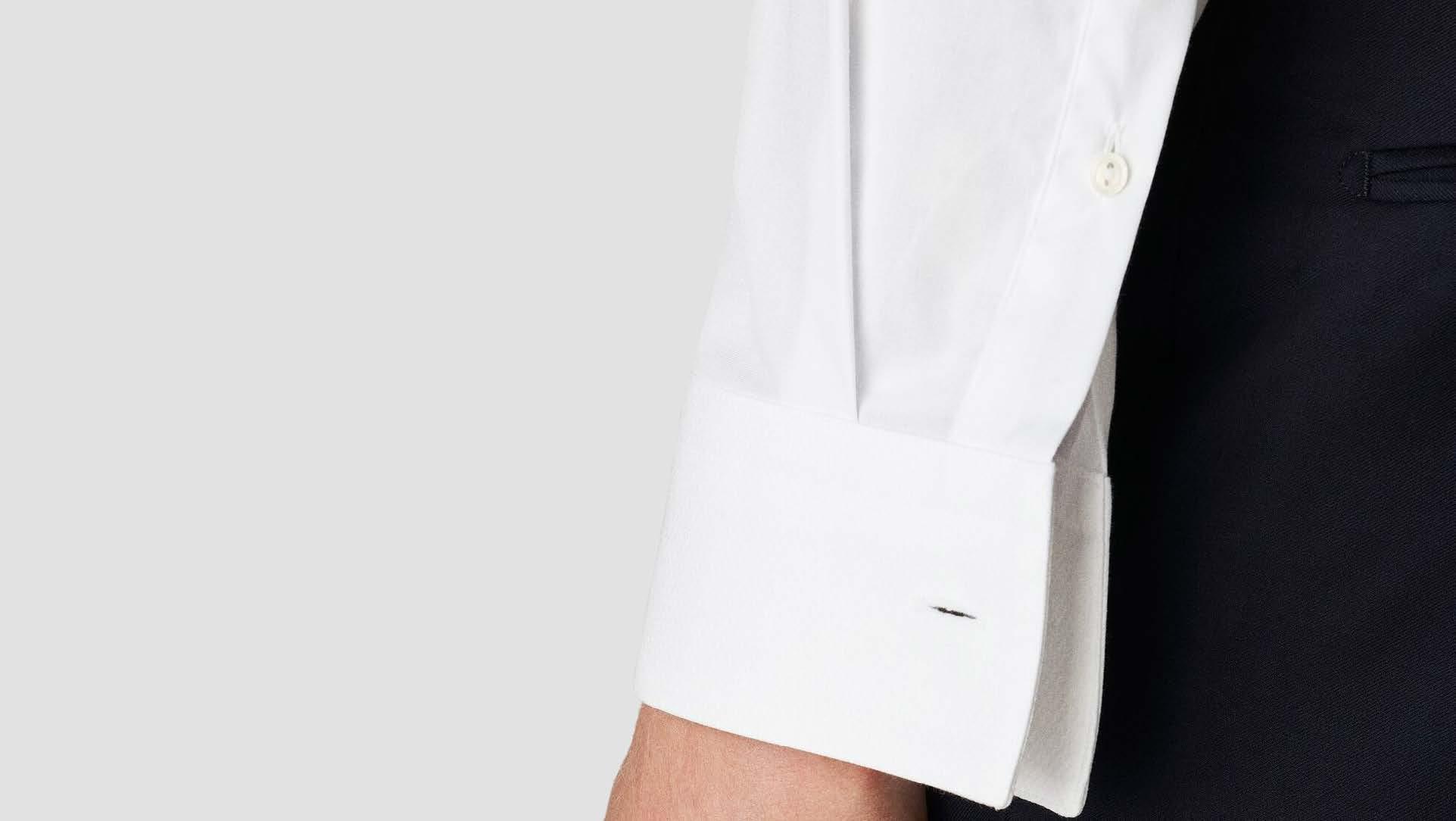
2023 in numbers

20% decrease in total emissions scope 1 - 3
100% renewable electricity in scope 1 & 2
73% organic cotton fabrics 44% waste reduction
2 new certifications: GOTS and GRS 98% of emissions based on actual data 85% decrease in emissions in scope 1 & 2
3 year project Systemdemonstrator initiated in collaboration with the University of Borås
100% water intensive suppliers with measured water use
100% of Tier 1& 2 suppliers audited with wage levels mapped
70% of our water intensive suppliers have a set reduction goal
A Comment From Our CEO
At Eton, we live by our values. The essence of “One Eton” is that when challenges arise, no one faces them alone – we work together and support each other. Our sustainability work is an embodiment of that sentiment, a true team effort. It reflects on the dedication of our entire company, and on the close collaboration with our partners. Looking back at 2023, it is rewarding to see that the goals we have set for ourselves are not just mere aspirations, but that there is measurable progress.
A key factor on this journey is that the statistics we present are the real numbers. Throughout the year, we have invested significant work into mapping, quantifying, and auditing our footprint, both within our operations and across our supply chain. A remarkable 98% of the figures we report are based on actual data. Our mutual success, both now and in the future, depends on collaborative efforts like this.
Another core Eton value is “Progressive”. Last year witnessed the start of several innovative projects, including a new partnership with Rekotex for repurposing surplus fabric. We have met the standards for the GOTS and GRS certifications, both weighing in social as well as environmental aspects, we have reduced our waste by 44%, and we have launched numerous other initiatives detailed in this year’s report. One of our major commitments has been to work exclusively with organic cotton in our fabric
and ready-made sourcing, and by 2023, we reached a noteworthy 73%. We are not there yet, but we face the future with confidence, tackling inevitable challenges with determination.
Through structured efforts internally, and in active collaboration with our partners, we have reduced our total greenhouse gas emissions by 16%, with an impressive 84% reduction within our own operations – already surpassing our 2030 Science Based Target for Scope 1&2. With hope and confidence, we look forward to taking the next steps towards fulfilling our commitments. Together, we can achieve remarkable things.
“Our
mutual success, both now and in the future, depends on collaborative efforts.”
– David Thörewik
David Thörewik, CEO


ABOUT ETON
Moving Forward Since 1928

The Eton Group
Eton’s business idea is to create superior products for all occasions in life, made with consideration for people and planet, and sold in a premium to luxury segment to men striving for excellence.
Our brand purpose is to empower the modern man to be the best he can be. We inspire consumers to confidently express their personal sense of style, enabling a more sustainable behavior through products with longevity.
Our assortment consists of shirts and accessories, made with an uncompromising focus on quality. We reach customers in over 50 markets across the globe. Our operations encompass our own channels – e-commerce and retail stores – as well as wholesale distribution to premium and luxury department stores and marketplaces.
Our Value Chain

OFFICES
– Gånghester (HQ)
– Atlanta
– Como
– London
– New York
Amsterdam
Milano
Copenhagen
London
New York
– Stockholm SHOWROOMS
Stockholm
Munich
BRAND STORES
– Arlanda Airport, Stockholm
– Kastrup Airport, Copenhagen
– Landvetter Airport, Gothenburg
– Madison Avenue, New York
– Malmö
– South Molton Street, London
– Sturegatan, Stockholm
– Väla, Helsingborg
CONCESSION STORES
– Illum, Copenhagen
– Magasin du Nord, Kongens Nytorv
– Selfridges, London
– Åhlens City, Stockholm
– Nordiska Kompaniet, Stockholm
LOGISTICS CENTERS
– Gånghester, Sweden
– Atlanta, USA
GÅNGHESTER, SWEDEN | 57°N,13°W
OUTLETS – Barkarby
Desert Hills – Gånghester
Hede – Wertheim
– Woodbury Commons
OUR CUSTOMER
Our customer base are individuals who invest in style with an appreciation for quality and luxury.
We share their belief that sustainability is also about longevity.
TOUCHPOINTS
Eton Online
48 markets
Eton Retail
5 markets Europe, North America
Wholesale Partners Europe, North America, Middle East, Asia
Supply chain facts:
ASSORTMENT AND SUPPLY CHAIN FUNCTIONS
Our assortment functions – including Design, Sewing Atelier, Buying and R&D – are located in Sweden and Italy. Our supply chain operations, which encompass Planning, Production, Quality, and Distribution, are based in Sweden and the US, with teams in Romania and Lithuania covering North Macedonia.
PRODUCTION
Our long-term approach is the foundation of our way of working. We work closely with suppliers to ensure highquality products and build long-term collaborations, which enhance job security and improve working conditions. Our partnerships enable transparency to ensure positive changes for everyone involved.
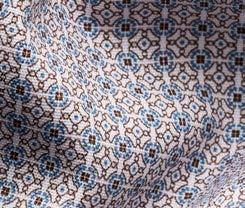



FABRIC
Our suppliers source yarn and raw materials, and we buy directly from weavers.
Cotton/raw material are mainly sourced from:
Egypt
Turkey
US
Weaving as well as finishings is done in:
Italy
Switzerland
Egypt
Turkey
ASSEMBLY
Suppliers cut and sew our shirts in:
Romania
Lithuania
North Macedonia
Sweden (HQ)
TRIMMINGS
Trimmings suppliers are located in:
Sweden
Italy
Germany
Switzerland
Trimmings production is located in:
Sweden
Italy
China
Vietnam
Taiwan
Portugal
Germany
Switzerland
Denmark
Poland
ACCESSORIES/ READY-MADE
Suppliers for both individual accessories and ready-made products are in:
Italy
Portugal
Bulgaria
Romania
Albania
Total pieces produced and ready-made: Produced: 1 172 517 pcs Ready-made: 190 899 pcs
PRODUCT – LEGACY FOR LONGEVITY
We commit to designing all products with longevity in mind to ensure a low FPU
Year by year
Eton Sustainability Commitments
We have continuoulsy worked close with our suppliers to design with longevity in mind in order to create timeless high-end products.
Assortment’s ambition is to always design with longevity in mind, aiming for timeless classics.
The target is linked to our heritage as quality shirt makers, and the disclosure of information in the upcoming DPP. Eco-design for Sustainable Products Regulation (ESPR). The regulation is anticipated to be formally adopted in Q1 2024. This legislation is expected to have a substantial impact on eco-design requirements for textile products sold in the EU. Read more here
On product transparency
GOVERNANCE – PROSPERITY FOR TRANSFORMATION
Through our business practices we ensure that we contribute to prosperity in all markets we are active in.
Year by year
Not started.
Full transparency throughout our supply chain 2025 85 %
Second year of reporting according to the GRI standards; GRI factor on Finance.
In preparation for the Digital Product Passport (DPP), we’ve researched on-product transparency options. In Fall 2024, we’ll debut QR codes on garments, offering details like composition, certification, product specifications, and supplier info. We have begun a 3-year collaboration with Borås Textilhögskola to further develop transparency solutions.
At Eton, we prioritize finding a suitable solution to comply with the Digital Product Passport (DPP) requirements. DPP is crucial for companies, particularly in the EU, as it aligns with the upcoming Eco Design Directive set to be enforced in 2027. DPP falls under the EU Green Deal’s Eco Design Sustainable Products Regulation (ESPR), supporting Europe’s pledge to the Paris Agreement and UN Sustainable Development Goals (SDGs). Read more here
We report according to the GRI standards; GRI factor on Finace. We prioritize conducting our business in a responsible way to support prosperity in the local markets where we are active.
Important in order to be aligned with the current GRI standards and the upcoming CSRD reporting requirements. Read more here
We mapped our supply chain from Tier 1 to Tier 2 with follow up on our suppliers using questionnaries. Out of 26 suppliers, 23 were mapped. In line with our transparency goal, we publicly disclose our supply chain at etonshirts.com.
By implementing our new sustainability reporting system we have increased the transparency into our supply chain to capture most of our Tier 1 and 2 and some of our Tier 3 suppliers. On track for follow up on all Tier 1 & 2 suppliers by 2025.
In line with the coming EU directive CSDDD. Read more here
SOCIAL – EMPOWER PEOPLE
Ensure safe work and labor rights, free from harassment and discrimination in our supply chain
Bi-annual audits of all our sewing factories, accessories suppliers and fabric suppliers.
Year by year
Year by year 100 %
We enforce strict compliance standards with our suppliers through our Code of Conduct, covering health and safety, fair labor practices, equitable pay, association and collective bargaining rights, and anti-corruption measures. Our auditing process further ensures supplier compliance.
We audited all Tier 1 suppliers suppliers, and started auditing our accessories suppliers using a third-party auditor, Intertek.
Throughout the year, we have actively enhanced supplier engagement to ensure work and labor rights. Our efforts include audits and personal visits. Utilizing Worldfavor as a sourcing tool enabled us to gather social impact data for the first time in 2023, broadening our insight.
This target aligns with what we will report under CSRD. Although Eton is now out of scope with the revised CSRD directive, many of our WHS customers must comply, and thus we have prepared accordingly. Read more here and here
Advocating inclusion & diversity
Map the wage levels at 100% of our main suppliers in production by 2023 and onwards.
Year by year 50 % In 2022, we established a new HR function led by our General Counsel and Head of HR. Based on our company values the HR department actively integrates inclusion and diversity in their work.
2023 100 % In 2022, we began our work to map the wage levels in our supply chain in line with our goals on fair wage through audits.
Work with our sewing factories to provide their workers with a fair wage Year by year
During our audits at our sewing factories, wages is an important factor. Suppliers are required to pay a fair wage and comply with local regulations. All audited suppliers received a high score on Wages and Benefits during 2022.
All of our Tier 1 and 2 suppliers are audited bi-annually either through third party auditors or valid audit results from OEKO-TEX® STeP Certification. For some of our suppliers we conduct an Eton audit.
This target is important in aligning what we would need to report on in line with CSRD. Although Eton is now out of scope with the revised CSRD directive, many of our WHS customers must comply, and thus we have prepared accordingly.
Read more here and here
Our HR department is leading this initiative, committed to creating inclusive workplaces reflecting our values. Moving forward, we aim for a structured approach to support this goal.
We have mapped all wages at our Tier 1 and 2 suppliers this year. Across all facilities, the lowest-paid employee earns above the minimum wage, and in some cases, surpasses both provincial and average pay rates.
Inclusion and diversity are crucial to Eton, especially as we are a global company. Taking responsibility in this area is essential.
Organizations like ACT, Ethical Trading Initiative, and Fair Wear strive for improved purchasing practices and fair wages globally. Fair wages are a key concern for customers evaluating supplier responsibility.
We have a transparent price set up with our Tier 1 suppliers. During 2023 we started to gather much more information and data on our supplier’s social impact to further address the importance of worker wellbeing and wages.
This aligns with preparing for the Corporate Sustainability Due Diligence Directive (CSDDD), where businesses must take more responsibility for their supply chains. While the recent revision does not affect us directly, some of our customers are impacted.
– CONSIDERATION FOR THE
Net Zero by 2050 the latest
reduction of emissions in scope 1–2
100% renewable electricity in our supply chain
2030 Tier 1: 19%, Tier 2: 24%, Vertical: 100%
Renewable energy throughout our own operations by 2025
A fully implemented circular business approach by 2030
100 %
During 2022, we began an ongoing dialog with our Tier 1 and 2 suppliers on the need to shift to renewable energy. We have mapped the energy consumption and energy source at 23 out of our 26 Tier 1 and 2 suppliers. The mapping gives us neccesary information on how we can support them in their transition to renewable energy.
During 2023, we have purchased approx 73% certified organic cotton and 0,1 % recycled cotton. We are however not fully in line with reaching our 2025 target.
Out of all the materials that we purchased in 2023, 72% were either certfied organic or recycled.
Our long term emission reduction target in line with SBTi. Read more here
An essential target in order to be in line with our
essential target in order to be in line with our Science based target validated by SBTi and our commitment to STICA. Read more here and
Our organic/recycled fabric targets are essential in achieving our overall emission reductions. We exclusively utilize certified fabrics and maintain brand certification to ensure that we can assert the certification of our products. Read more here and here
We have RWS, organic linen, and cashmere in the materialmix which of today doesn’t have a separate emission factor in HIGG MSI. This will have an effect on our figures in the future. Read more here and here
5 %
We have worked actively during the year to reduce our emissions in our own operations. Several initiatives have been taken, exploring the possibility to install solar panels. Key areas we need to improve to reach our goal were identified.
Together with our long-term supplier, Albini, we have explored ways to recycle our pre consumer waste. We switched to 100% recycled polyester neck clips. Increased the recycled materials in trims and the content of recycled materials in eCom boxes.
Water intensive business partners measure water use and have set reduction goals.
2025 70 % Our yearly follow up on our suppliers with water-intensive production processes shows us that 82% of our suppliers measure their water use and 39% of our water intesive suppliers has a reduction goal set.
We have maintained a dialogue with our suppliers regarding the transition to renewable energy, and assessed the renewable energy (fuel + electricity) portion within our supplier network. Many suppliers have made investments in energy efficiency. 60% of our suppliers have installed solar panels and 70% have renewable electricity in their energy mix.
In 2023, we acquired Energy Attribute Certificates (EACs) through the EQT tender for the non-renewable energy portion, enabling 100% renewable electricity. All departments are asked to procure renewable energy through landlords to reduce the need for EACs over time.
We have begun exploring circular initiatives, such as implementing a take-back scheme for old Eton garments in all global stores. Retail has set a 2024 progress target to prioritize this effort. We have also introduced a shirt crafted from recycled textile waste and committed to a 3-year project with Borås Textilhögskola to delve deeper into circular solutions.
We have continued during 2023 to measure the water use at our suppliers and this year captured 90% of our suppliers and 100% of our water intensive suppliers. 41% of our water intensive suppliers has a set reduction goal.
Renewable energy is a key factor in reducing our scope 3 emissions. Our ambition is to fully transition to renewable energy, but this goal is more challenging due to the lack of infrastructure for renewable fuels such as biogas instead of natural gas.
Renewable energy is a crucial factor identified to assist us in reducing our scope 1&2 emissions. Our ambition is to fully transition to renewable energy by 2025.
Europe is transforming towards a circular economy. Proposed regulations by the EU hold producers responsible for textile product lifecycles to promote sustainable waste management. This initiative aligns with the EU Strategy for Sustainable and Circular Textiles, fostering improved collection, sorting, reuse, and recycling practices to address textile waste. Read more here and here
We are taking responsibility for water usage in our supply chain, focusing on Tier 1 & 2 suppliers. Textile production requires large water and land resources, consuming 79 billion m3 of water globally (2015) compared to the EU’s total economy, which used 266 billion m3 (2017). Read more here
Sustainable Development Goals
The 2030 Agenda for Sustainable Development, comprising the Sustainability Development Goals (SDGs), serves as a global framework for achieving peace and prosperity for both people and the planet. At Eton, we recognize the importance of targeted actions and collaboration to address complex issues.
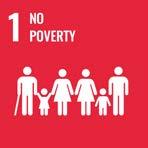


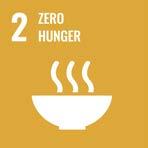
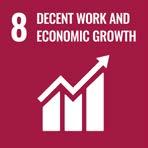
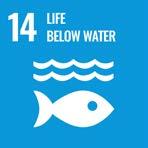
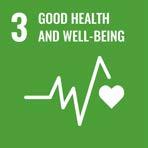
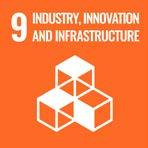

We endorse and support all SDGs, and we have identified seven prioritized goals where we can make the most significant impact. We have developed our Eton Sustainability Goals, along with practical actions to support these prioritized goals. We remain committed to work for progress across the full spectrum of SDGs.
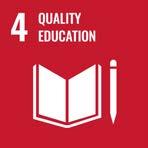
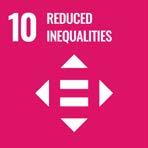

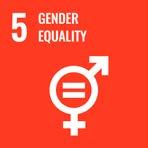
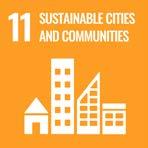
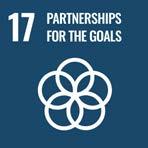
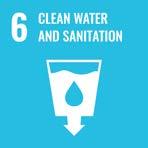
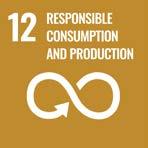

OUR FOCUS GOALS
We support all SDGs; however, we have prioritized seven where our company can have the greatest impact and the potential to make a positive contribution. We have developed our Eton Sustainability Commitments, along with practical actions that focus on initiatives supporting the prioritized SDGs. In order to take social responsibility as a company and acknowledge that our business impacts more than just our prioritized SDGs, we will continue to support all SDGs in addition to our focused actions for the prioritized ones.

SOCIAL:
ACHIEVE GENDER EQUALITY AND EMPOWER ALL WOMEN AND GIRLS
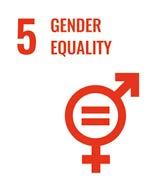
Reflecting on our heritage as a female founded company almost a century ago, actions are taken to promote gender equality. In line with our company values One Eton and Empowering. Material topics relating to this target: Human Rights and Fair Labor Conditions in Supply Chain.
Non-material topics: Inclusivity & Diversity and Working Conditions in Own Operations.
End all forms of discrimination against all women and girls everywhere.
Ensure women’s full and effective participation and equal opportunities for leadership at all levels of decision-making in political, economic, and public life.
PROMOTE SUSTAINED, INCLUSIVE, AND SUSTAINABLE ECONOMIC GROWTH, FULL AND PRODUCTIVE EMPLOYMENT, AND DECENT WORK FOR ALL.
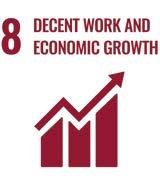
In line with our company values One Eton, Empowering and Work Smart.
Addressing our material topics: Human Rights, Anticorruption & Ethics, Fair Labor Conditions in Supply Chain, Freedom of Association, Economic Performance, and Impact.
Non-material topics: Working Conditions in Own Operations and Attracting & Retaining Talent.
Protect labor rights and promote safe and secure working environments for all workers, including migrant workers, in particular women migrants, and those in precarious employment.
ENVIRONMENT:
ENSURE AVAILABILITY AND SUSTAINABLE MANAGEMENT OF WATER AND SANITATION FOR ALL.
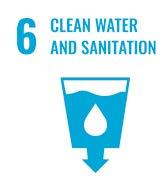
Prioritized to mitigate pollution in our supply chain, ensure cleaning of wastewater, and decrease water usage.
The goal is linked to our values One Eton and Progressive.
Material topics to this target: Pollution in Supply Chain, Chemical Management, and Water Usage in Supply Chain.
6.3
By 2030, improve water quality by reducing pollution, eliminating dumping and minimizing release of hazardous chemicals and materials, halving the proportion of untreated wastewater and substantially increasing recycling and safe reuse globally.
ENSURE ACCESS TO AFFORDABLE, RELIABLE, SUSTAINABLE, AND MODERN ENERGY FOR ALL.
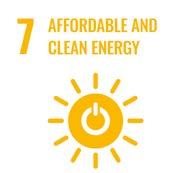
In scope 1–2 (own operations) we use 100% renewable electricity. As most of our emissions are related to our supply chain (scope 3) we have started the work of transitioning our supply chain to renewable energy, to achieve our goal of 100% renewable electricity by 2030.
In line with our material topic: Climate Impact.
In line with our company values One Eton and Progressive.
7.2
By 2030, increase substantially the share of renewable energy in the global energy mix.
PROTECT, RESTORE AND PROMOTE SUSTAINABLE USE OF TERRESTRIAL ECOSYSTEMS, SUSTAINABLY MANAGE FORESTS, COMBAT DESERTIFICATION, AND HALT AND REVERSE LAND DEGRADATION AND HALT BIODIVERSITY LOSS.
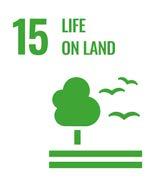
In line with our company value Progressive.
Addressing our material topics: Climate Impact, Circularity, More Sustainable Materials, Pollution in Supply Chain and Water Usage in Supply Chain.
We are shifting towards using 100% organic and recycled cotton and other sustainable materials in our products, prioritizing responsible land use and biodiversity. Additionally, we are committed to sourcing non-commercial goods such as packaging materials from recycled sources or responsibly managed forests.
15.3
By 2030, combat desertification, restore degraded land and soil, including land affected by desertification, drought, and floods, and strive to achieve a land degradationneutral world.
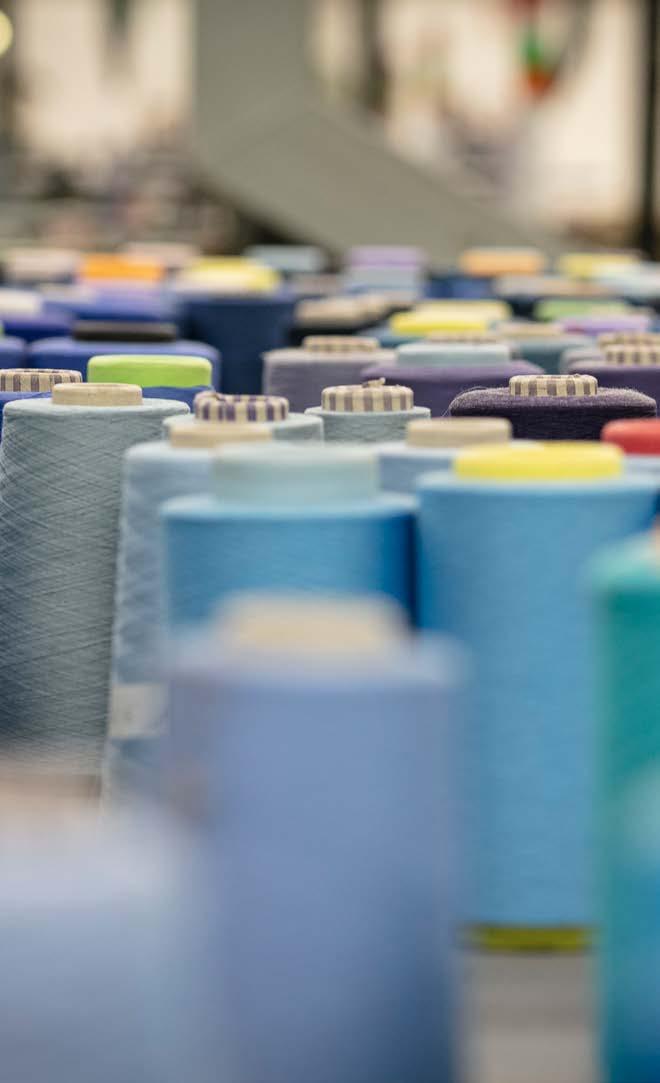
PRODUCTION AND GOVERNANCE:
ENSURE SUSTAINABLE CONSUMPTION AND PRODUCTION PATTERNS.
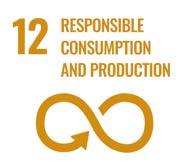
In line with our company values Work Smart and Progressive.
Addressing our material topics: Pollution in Supply Chain, Chemical Management Circularity, Climate Impact, Water Usage in Supply Chain, More Sustainable Materials and Economic Performance and Impact.
12.2
By 2030, achieve the sustainable management and efficient use of natural resources.
12.4
By 2020, achieve the environmentally sound management of chemicals and all wastes throughout their life cycle, in accordance with agreed international frameworks, and significantly reduce their release to air, water and soil in order to minimize their adverse impacts on human health and the environment.
12.5
By 2030, substantially reduce waste generation through prevention, reduction, recycling and reuse.
12.6
Encourage companies, especially large and transnational companies, to adopt sustainable practices and to integrate sustainability information into their reporting cycle.
TAKE URGENT ACTION TO COMBAT CLIMATE CHANGE AND ITS IMPACTS.
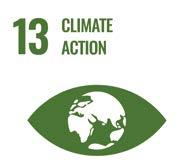
In line with our company values
Work Smart and Progressive.
Addressing our material topic: Climate Impact . We are measuring and following up on our emissions in scope 1–3 and actively working on reducing our emissions and mitigating our impact. We have 2019 as our base year and we have committed to reduce our emissions in line with the Paris agreement.
13.2
Integrate climate change measures into national policies, strategies and planning.
PRODUCTION AND HERITAGE
Legacy for Longevity


Our commitments:
· Designing all products with a focus on longevity
· Full product transparency by 2026

Building on History
Our founder, Annie Petterson, launched Eton from her home in the village of Gånghester, Sweden, in 1928. Her dedication to quality and attention to detail was the driving force that grew the company into what it is today.
As a global brand within the textile industry, we understand how our operations impact the climate, economies, and communities along the value chain. The fashion industry has an impact on the environment, where each piece produced represents resources used. Our ambition is to build on our strengths to redefine luxury consumption as responsible consumption of products with long-lasting quality.
Eton’s products are created with sustainability in mind, considering factors such as style longevity, quality durability, material fiber choices, manufacturing processes, and end-oflife impact. Our shirts are timeless essentials – made for expressing individuality and inspiring confidence through personal style.
RECLAIMS
From the day Annie received her first order and until today, quality has been Eton’s driving force. This is reflected in our low customer reclaims rate, with only 0.19% within our shirts assortment and 0.034% for accessories. All reclaims (garments and accessories) are registered by our ware- house team, and followed up by our Quality department.

“Never hand over a shirt unless you are completely satisfied with it.”
– Annie Petterson
OLOF ENCKELL, HEAD OF ASSORTMENT,
Breathing New Life into Fabric
The concept behind Eton Archive revolves around utilizing Eton’s extensive fabric inventory.
As Head of Assortment, Olof Enckell is responsible for the transformation of fabric from previous collections into brand new garments.
“We view our fabric stock as a heritage – a treasure trove of possibilities. We asked ourselves if it could become the source of something new and desirable for our customers,” Enckell says.
The limited-edition Eton Archive made its debut in April 2023 to great success and is now continuing with subsequent themed drops. The initial collection featured a range of striped shirts, each carefully reimagined with altered details such as optional collar stays and varied cuffs.
“The first release of the Eton Archive exceeded expectations, selling over 90% – a great achievement for any collection. Our archive isn’t about resurrecting old shirts; instead, we are crafting entirely new shirts in fresh colorways from existing fabrics.”
Eton Archive’s success lies in its limited availability, turning what might be seen as a constraint into a positive aspect.
“The limited selection and stock adds to the appeal. Once the shirts are gone, we can’t produce more, which adds to their exclusivity,” Enckell explains, underlining the strategy behind the initiative.
He offers a glimpse into Eton’s innovative approach.
“We want to be honest about the underlying reason –sometimes, we acquire more fabric than we use. But we’re proud to have turned an excess into a positive outcome.”
As the project evolves, the vision includes not just the revival of forgotten fabrics but the creation of Eton Archive as a unique narrative within the brand story.
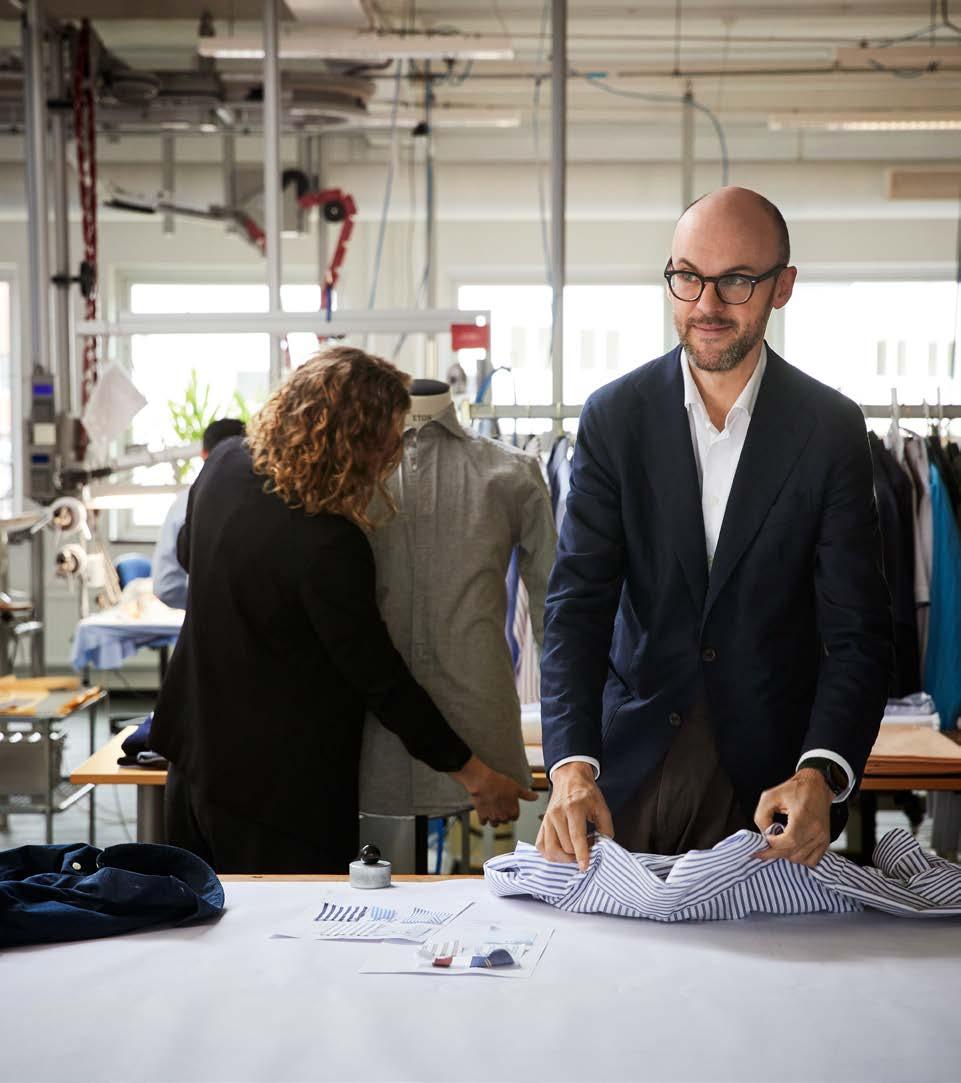
“ The limited selection adds to the appeal.”
– Olof Enckell
Quality Control

Quality assurance involves meticulous collaboration with our garment factories. Our quality and production department maintains communication and local presence throughout the value chain, for support and assistance. Eton’s quality team reviews and approves all production parameters:
· We pay attention to every detail, from how fabrics are stored, handled, cut, and matched, to the precision with an accuracy down to 1/3 of a millimeter.
· We ensure the use of correct tools, machinery and technology.
· We monitor templates, temperatures, speed, and other factors to guarantee the shirt’s final quality.
CUSTOM MADE
At Eton, we offer custom-made shirts tailored to personal preferences. Whether it’s adjusting fit, style, or accommodating physical needs. Using our existing shirt designs as a basis, we personalize each shirt based on measurements and design choices. Custom orders are crafted in Lithuania and partially in our Swedish headquarters for development and testing.
CAREFUL PRODUCTION
Eton uses high-quality materials, including Extra Long Staple cotton, comprising only 2–3% of each harvest. Our production ensures longevity, with long-standing close ties to heritage fabric mills in Italy and Tier 1 garment factories in Romania, North Macedonia, and Lithuania. Additionally, we have a production unit in Sweden for development and innovation testing, while custom-made orders are produced primarily in Lithuania and partly in Sweden.
CARE GUIDE
We prioritize longevity through design and materials, and we provide care instructions on our website and B2B platform. Covering topics like washing, stain removal, and ironing, our aim is to help customers extend the lifespan of our products. We also offer a complimentary button replacement service for our customers.
FOOTPRINT PER USE
The FPU measures the overall impact of each new product, including production, distribution, selling, marketing, returns, care, and repair. We pledge to design all products with longevity in mind, and our objective is to decrease this footprint per use while preserving product durability and appeal, leading to a reduced FPU.
ANNICA AXELSSON, QUALITY CONTROLLER,
Five Decades of Dedication to Quality
After over fifty years at Eton, Annica Axelsson knows the Eton shirt inside out. For 35 years, she was responsible for folding the shirts for shipment, adding the final touch and making sure every piece held up to the rigorous standards.
“Folding and laying the final hand on each shirt really gave me a good feeling for quality,” Axelsson shares.
In her current role as a Quality Advisor, she makes sure that every garment of the same model is identical, whether it’s made in Sweden, Romania, North Macedonia or Lithuania.
“It’s crucial that the shirts are exactly the same, down to the last detail, no matter where they’re sewn.”
Eton’s commitment to consistency is thoroughly described in a 600-page quality manual, covering everything from thread thickness to seam allowance width. Whenever starting production in a new spot, Axelsson is at the site every other week, guiding the process until the production unit is ready to stand on their own, typically after about three years. Even if Eton doesn’t own the sewing supplier, there is usually a full line that works solely with the brand.
But Axelsson’s work is not only focusing on maintaining quality – it is as much about improving it.
“Whenever I see something that strikes me as off, I ask myself why. There are always small improvements that can be made,” she says.
“In 2023, we worked a lot on improving the side seams of the shirts. We asked ourselves if they could be made flatter and less wrinkled after being washed.”
The tweak, using a special inlay, is now being tested over time to ensure lasting quality. As the force behind Eton’s pursuit of perfection, Annica Axelsson is weaving innovation into the very fabric of each shirt.
“Once we implement an update, we make it permanent. We believe in creating maximum quality for the money.”
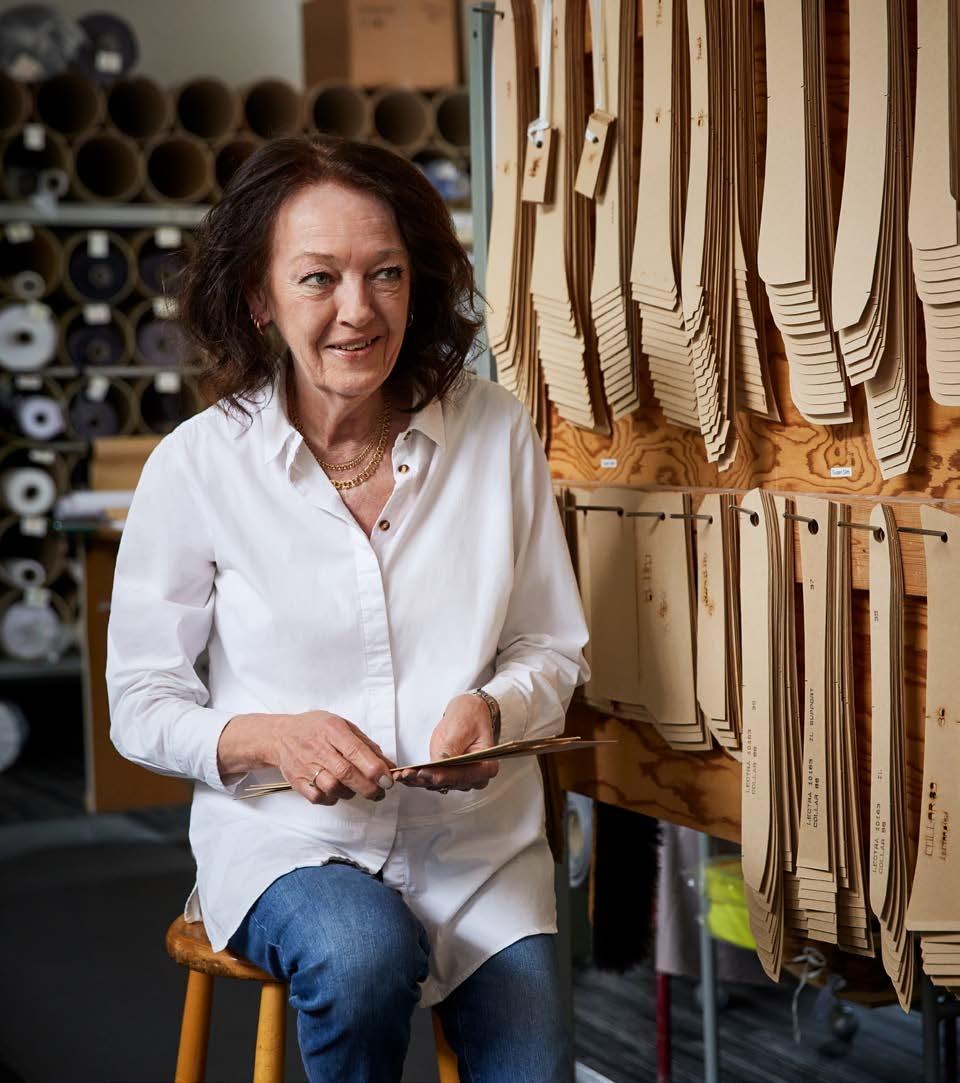
“Whenever I see something that strikes me as off, I ask myself why.”
– Annica Axelsson
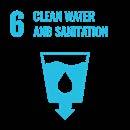
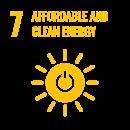

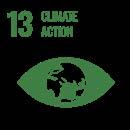
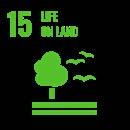

ENVIRONMENT AND CLIMATE
Consideration for the Planet
Our commitments:
· Net Zero by 2050
· 50% cut in scope 1–2 emissions by 2025
· 30% reduction in scope 3 emissions by 2030
· Circular business approach by 2030
· Renewable energy in own operations by 2025
· 100% renewable electricity in supply chain
· By 2025, all business partners with water intensive operations measure their water use and have set reduction goals.
· 100% organic or recycled cotton by 2025
· 100% more sustainable or recycled fibers by 2030
Eton’s Climate and Environmental Commitment
At Eton, we are reimagining our ways of working to future-proof our operations. With actions being taken across all departments – design, production, shipping, packaging, and distribution –our transitional journey has already begun. Recognizing our impact as a fashion industry player, we focus on our identified material aspects; climate, circularity, sustainable materials, supply chain pollution, chemical management, and responsible water usage. We are fully committed to reducing our impact while continuing to provide our customers with high-quality products.
One of our prioritized SDG goals is Climate Action. We commit to reducing our emissions and minimizing our impact on ecosystem-services, and we see the need of transitioning away from conventional materials and increasing the use of sustainable materials. We align our scope 1-3 targets with the Paris Agreement, with a net zero goal by 2050. As STICA members, we have ambitious targets: 50% reduction in Scope 1 and 2, and 30% in Scope 3 emissions by 2030.
Our Material goals include a transition to 100% organic cotton by 2025 and 100% sustainable fibers by 2030. Energy efficiency and renewable energy across scope 1–3 is also a key focus.
Our third area of focus is Transportation, responsible for 36% of emissions, with plans for alternative methods like sea and train freight. Detailed progress can be found in our Transport subsection.

TOWARDS NET ZERO BY 2050
Climate impact
The total emissions from Eton Group’s operations in the financial year of 2023 were 16132 tons of CO2e, a decrease of 20% compared with 2019. Nearly all, 99.6 % came from scope 3: our indirect emissions, mainly our supply chain. The distribution of emissions per scope is illustrated in figure 1. All calculations are primarily based on actual activity data from our operations and suppliers. For 2023, 98% of our emissions are based on actual data. The climate consultant company 2050 has performed the underlying calculations. Our reported activity has been matched to emission factors to calculate the climate impact from our operations. Where data gaps have been identified, estimations have been made based on best available knowledge. We have applied a marketbased method and an operational control approach in our climate accounting.
FIG
Emissions scope 1 & 2
Since 2018, we have been tracking and reporting our scope 1 and 2 emissions, with 2019 set as the base year. By taking measures to reduce our climate impact across scopes 1 and 2 every year, the 2023 data shows a remarkable improvement, compared to our 2019 base year, with scope 1 and 2 emissions decreased by over 80%.
SCOPE 1
SCOPE 2
DIRECT GREENHOUSE EMISSIONS that occur from sources that are controlled or owned by an organization.
INDIRECT EMISSIONS associated with the purchase of electricity, steam, heat, or cooling.
2 , CH4 and N 2 O are included in the calculations. There are zero (0%) biogenic emissions.
Climate Impact and Action in Scope 1 & 2
Reducing our emissions is a top priority for us, both in our operations and in the energy we procure. We have already surpassed our Science Based Target Initiative (SBTi)-validated goal for reducing Scope 1 & 2 emissions by 46% by 2030 (with 2019 as the base year), with an impressive 84% reduction. The success stems from a focused effort on energy efficiency. In 2023, our Gånghester HQ and warehouse, along with our Alpharetta warehouse, transitioned entirely to renewable energy and district heating. This shift to renewables has had a profound impact, with 85% of our energy across all facilities now sourced from renewable sources. We have acquired

EACS to cover the portion of our electricity that isn’t renewable, allowing us to achieve 100% renewable energy for our own facilities.
Additionally, we have implemented a company car policy requiring the lease of hybrid or electric cars, and we have installed chargers for electric cars at our headquarter. For our stores and showrooms not currently using renewable energy, we are discussing with landlords the possibility of transitioning to renewable sources. We have identified at which facilities we need to enhance energy efficiency going forward.
Climate Impact and Action in Scope 3
2023 saw a decrease in our total emissions by 20% compared to the 2019 base year. Our biggest climate impact stems from indirect emissions (scope 3), making up 99.6% of our total emissions.
Scope 3 results from activities in our value chain, like production and transport, that are not directly controlled by us. Monitoring and analyzing our emissions are crucial to identify what actions will help us reach our emission reduction target by 2030. We have set ambitious goals and are committed to achieving them. The financial year of 2023 is the fourth time Eton Shirts collect data for scope 3. The total emissions from Eton Shirts’ operations in 2023 are 16132 ton CO2e, where the absolute majority (99.6 %) are derived from scope 3. Across all categories, Purchased Goods and Services, which include production and packaging materials, have the largest overall impact (60% of total emissions).

KEY EMISSION DRIVERS IN PRODUCTION
RENEWABLE ENERGY
We have an ongoing dialogue and closely monitor the progress of our suppliers and aim to actively support their transformation. An ongoing initiative with our Tier 1 and 2 suppliers is focusing on their transition to renewable energy. We have assessed energy consumption and sources at 90% of our suppliers, 20 out of 22, providing essential insights for continued dialogue and support in their transition. Aligned with our goal of achieving “100% renewable electricity in our Tier 1 supply chain by 2030,” this shift will significantly reduce our future emissions. Our efforts are in line with SDG 7 for affordable and clean energy. We anticipate our actions will indirectly contribute to SDG 7.2, increasing the share of renewable energy globally.
MATERIALS
When we analyze our impact we can conclude that the materials we choose have a big impact on our emissions. We are committed to transitioning to more sustainable options with lower environmental footprints. Our certifications; OCS, RCS, GRS and GOTS enable us to select materials with reduced impact. We are shifting towards using only organic and recycled cotton by 2025, resulting in emission reductions despite increased purchases. We aim to have all our materials to be ”more sustainable” by 2030, as we strive to balance sustainability with Eton’s quality standards through meticulous sourcing efforts. In the production phase, Tier 4 (raw materials) and Tier 3 (yarn and fiber processors, including trims) have the highest emission impacts.
FIGURE 8. EMISSIONS IN SCOPE 3 PER CATEGORY PURCHASED GOODS AND SERVICES (TON CO 2e)
60% of all Eton’s suppliers in Tier 1 and 2 currently use solar energy either partially or fully, with a majority planning to implement it within a five-year period.
Tier 1 Suppliers (finished products): Out of 10 suppliers, 50% rely on solar cells for partial or full energy supply.
Tier 2 Suppliers (material production): Out of 10 suppliers, 70% rely on solar cells for partial or full energy supply.
Since Eton uses mostly cotton, organic cotton and virgin cotton fibers represent an emission share of 69%, a decrease in cotton emissions compared to previous years due to the higher percentage of organic cotton. Silk represents 14%, Wool 6.2 %, Flax 4.4%, Polyester 2 %, Lyocell 1.8% and recycled Nylon 1.5% r espectively. While Silk and Wool comprise only 3.2% of the total material weight, they account for 20.5% of emissions. 37% of our total scope 3 emissions come from Tier 2, and we work with suppliers to increase renewable electricity usage and to optimize energy consumption.
TRANSPORTATION
36% of Eton’s total emissions stem from transportation and distribution. Eton is a company with global reach, with a main warehouse in Sweden complemented by a smaller warehouse in the USA. Air freight has often been deemed a necessity, and subsequently has the highest negative impact representing 94% of these emissions. In order to decrease our emissions a transition to train, sea, or road transport is necessary.
Transport emissions decreased in 2023 compared to the previous year in great part due to less air and more road transports. With inbound carrying a 25% share of the total payload, it represented only 2.8% of emissions, all from road freight. Outbound carries 72% of the payload but represents 94% of emissions due to a large share of outbound transports being carried out through air freight. System boundary for inbound is all transports to our central European warehouse in Gånghester, Sweden.
The decrease in transport emissions from last year is mainly due to optimization efforts by our Distribution team, and the implementation of a new box format to enable more efficient packing. Through an improved stock balance we could consolidate and reduce multiple shipments, minimizing handling time and resulting in lower transportation mileage, fuel consumption, and carbon emissions. We continue developing our logistics setup to further reduce our environmental impact with a focus on direct deliveries.
FIG 9. PAYLOAD DISTANCE PER MODE OF TRANSPORTATION AND TYPE [TONKM]
FIG 11. SCOPE 3 TARGET PROGRESSION
FIG 10. EMISSIONS
The Greenhouse Gas Protocol: All calculations and reporting follow the guidelines set out in the Greenhouse Gas (GHG) Protocol. Eton’s emissions have been divided into three scopes (1–3): Scope 1 are direct emissions, Scope 2 are indirect emissions from purchased energy, and Scope 3 all other indirect emissions.

SCOPE 1 EMISSIONS:
· Company operated vehicles
· Refrigerant leakage in offices, stores, showrooms, and warehouses
· Fuel use for own heat or electricity production
SCOPE 2 EMISSIONS:
· Electricity consumed in offices, stores, showrooms, and warehouses
· District heating consumed in offices, stores, showrooms, and warehouses
· District cooling
SCOPE 3 EMISSIONS:
· Purchased goods and services (representing tier 1–4 and non-commercial goods/packaging materials)
· Transportation and distribution (upstream and downstream)
· Energy (electricity, heat and fuels) consumed in third party warehouses, concession stores, and other facilities
· Fuel and energy related activities
· Business travel
For the division of categories between scopes, see FIGURE 11.
COMMITMENTS ALIGNED WITH THE PARIS AGREEMENT
Eton Group is a member of the Swedish Textile Initiative for Climate Action (STICA). We commit to reduce our absolute emissions by 50% in scope 1 and 2, and by 30% in scope 3, by 2030 from a 2019 base year. This is aligned with what is required by scientific consensus.
To learn more, please visit www.sustainablefashionacademy. org/stica

The Science Based Targets Initiative (SBTi) has validated Eton’s Science based target, committing to reduce scope 1 and scope 2 GHG emissions with 46% by 2030 from a 2019 base year, and to measuring and reducing its scope 3 emissions. As a longterm target, we have committed to be net zero by 2050.
OPERATIONAL CONTROL APPROACH
For the climate calculations in this report, an operational control approach has been used, which means greenhouse gas emissions are classified as direct emissions when the activity gives rise to emissions during use, for example when leasing vehicles or operating in rented premises.
MARKET-BASED METHOD
In this climate accounting report, the market-based method has been applied. The emission factor is represented by the emissions from electricity sources that companies purposefully have chosen. This means that if the company has bought electricity with guarantees of origin, the emission factors reflect that. All other electricity that is delivered without guarantees of origin represents the remaining electricity production, a so-called residual mix.
FIG 12. SCHEMATIC FIGURE OF SCOPE 1, 2 AND 3 EMISSIONS RELATED TO AN ACTIVITY AND ITS VALUE CHAIN, ACCORDING TO THE GHG PROTOCOL.
· SCOPE 1: DIRECT EMISSIONS FROM THE OPERATIONS.
· SCOPE 2: INDIRECT EMISSIONS GENERATED DURING THE PRODUCTION OF PURCHASED ELECTRICITY, DISTRICT HEATING AND COOLING.
· SCOPE 3: OTHER INDIRECT EMISSIONS, BOTH UPSTREAM AND DOWNSTREAM IN THE VALUE CHAIN.

13. FABRICS USED (TOTAL, SHIRTS AND ACCESSORIES)
FIG
CERTIFICATIONS
In 2023, the Eton Group was verified for organic and recycled materials: GOTS and GRS. These are added to our existing certifications for RCS, OCS and RWS.
(OCS) license number CU 1043377
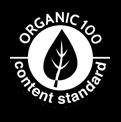
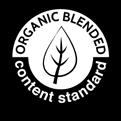
The Organic Content Standard (OCS) certifies that products contain organically grown material that has been independently verified at each stage of the supply chain, from source to final product.
(RWS) license number CU 1043377
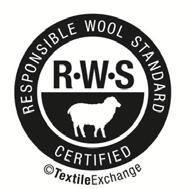
The Responsible Wool Standard (RWS) describes and independently certifies animal welfare and land management practices in wool fiber production and tracks the certified material from farm to final product.
CERTIFICATIONS MADE FILTERABLE IN OUR DIGITAL SHOWROOM
The third-party certification body is Control Union (CU). The scope of our certification includes our sewing factories. We only claim organic or recycled cotton if we are certified for it. Our objectives include achieving 100% organic or recycled cotton by 2025 and ensuring that all our materials are 100% sustainably sourced by 2030. As of now we are not fully on track of reaching our 2025 goal, this will most likely be delayed by a year.
license number CU 1043377
The Global Organic Textile Standard (GOTS) requires the certified companies in the full value chain to adhere to strict social and environmental requirements in addition to the traceability of the material. Only textile products that contain a minimum of 70% organic fibers can become GOTS certified. All chemical inputs such as dyestuffs and auxiliaries used must meet environmental and toxicological criteria.
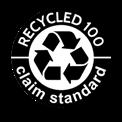

The Recycled Claim Standard (RCS) verifies the recycled material and tracks it from the source/recycler to the final product.
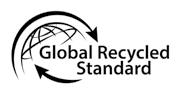
Products certified to the Global Recycled Standard (GRS) contain recycled material that has been independently verified at each stage of the supply chain, from the source to the final product. In addition, social, environmental, and chemical criteria related to processing are required.
In the Fall/Winter 2024 collection, our sales managers and customers will have the ability to filter products based on our various certifications within our Digital Showroom.
From our latest collection, 41.9% of all items are deemed More Sustainable. Specifically focusing on clothing, 73.9% of garments fall under this category. When considering our total sales volume, 73% is More Sustainable. Focusing on clothing alone, 87.3% of the volume consists of More Sustainable choices.
(GOTS)
(RCS)
(GRS) license number CU 1043377
LOTTA NYMAN, SENIOR BUYER,
Organic Sourcing Through Long-term Partnerships
Eton has committed to the demanding task of achieving 100% organic or recycled cotton by 2025. A complex procedure, but steps are underway. At the forefront of this initiative stands Lotta Nyman, who together with Eton’s head of fabric
Valerio Leone, is leading the company through a transformative sourcing process. It has provided her with insights into the challenges in everything from sourcing the actual fabrics, to building robust long-term partnerships with suppliers.
“At Eton, our quest for excellence demands extra-long staple cotton –an exclusive fabric celebrated for its extended fibers,” Nyman explains, expanding on the struggles to secure this premium material.
“Supima cotton, from the U.S., plays a central role for us, and our active support for organic production in this region is crucial to securing a supply for future seasons.”
Transitioning from conventional to organic farming involves a painstaking three-year certification process overseen by independent third-party organizations. The rigorous standards govern what fertilizers and pesticides (non-toxic only) can be used alongside other strict criteria.
“Our commitment is not just a goal but a philosophy that extends to every aspect of our supply chain,” Nyman explains, underscoring the underlying values, where the importance of establishing enduring partnerships with suppliers cannot be overstated.
“We strategically plan and commit to specific suppliers well in advance, to provide stability and predictability in their operations. It’s a mutually beneficial relationship.”
Addressing the misconception that organic cotton is prohibitively expensive, Nyman offers a perspective shift.
“While it might seem pricier, considering the lower yield per crop. But when you factor in the added benefits like improved biodiversity and reduced environmental impact, it’s an investment in a sustainable future.”
Organic cotton is cultivated and harvested from non-genetically modified plants, it’s grown without the use of harmful chemicals and pesticides, protecting both the environment and the health of the farmers.
“It’s
an investment in a sustainable future.”
– Lotta Nyman
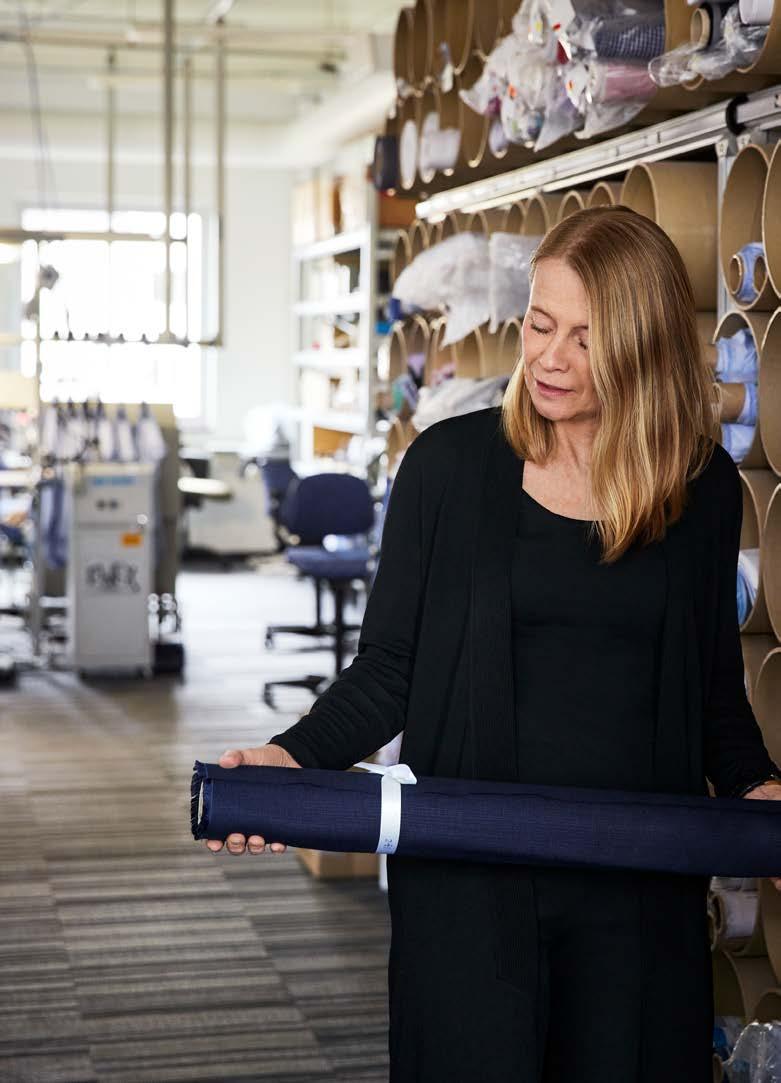
Animal Welfare
Animal welfare is of utmost importance to Eton. All parties involved, handling animals and materials, must follow national and international legislation. Materials used for our products must never originate from vulnerable or endangered species as specified in the Convention of International Trade in Endangered Species (CITES).
Our Code of Conduct states that the five freedoms, recommendations on animal welfare set out by the World Organization by Animal Health (OIE), should be the guiding principles on all farms used in the production of fiber origin from animals used for Eton products.
1. Freedom from hunger, malnutrition and thirst by ready access to fresh water and a diet to maintain full health and vigor
2. Freedom from heat stress or physical discomfort by providing an appropriate environment including shelter and a comfortable resting area
3. Freedom from pain, injury and disease by prevention or rapid diagnosis and treatment
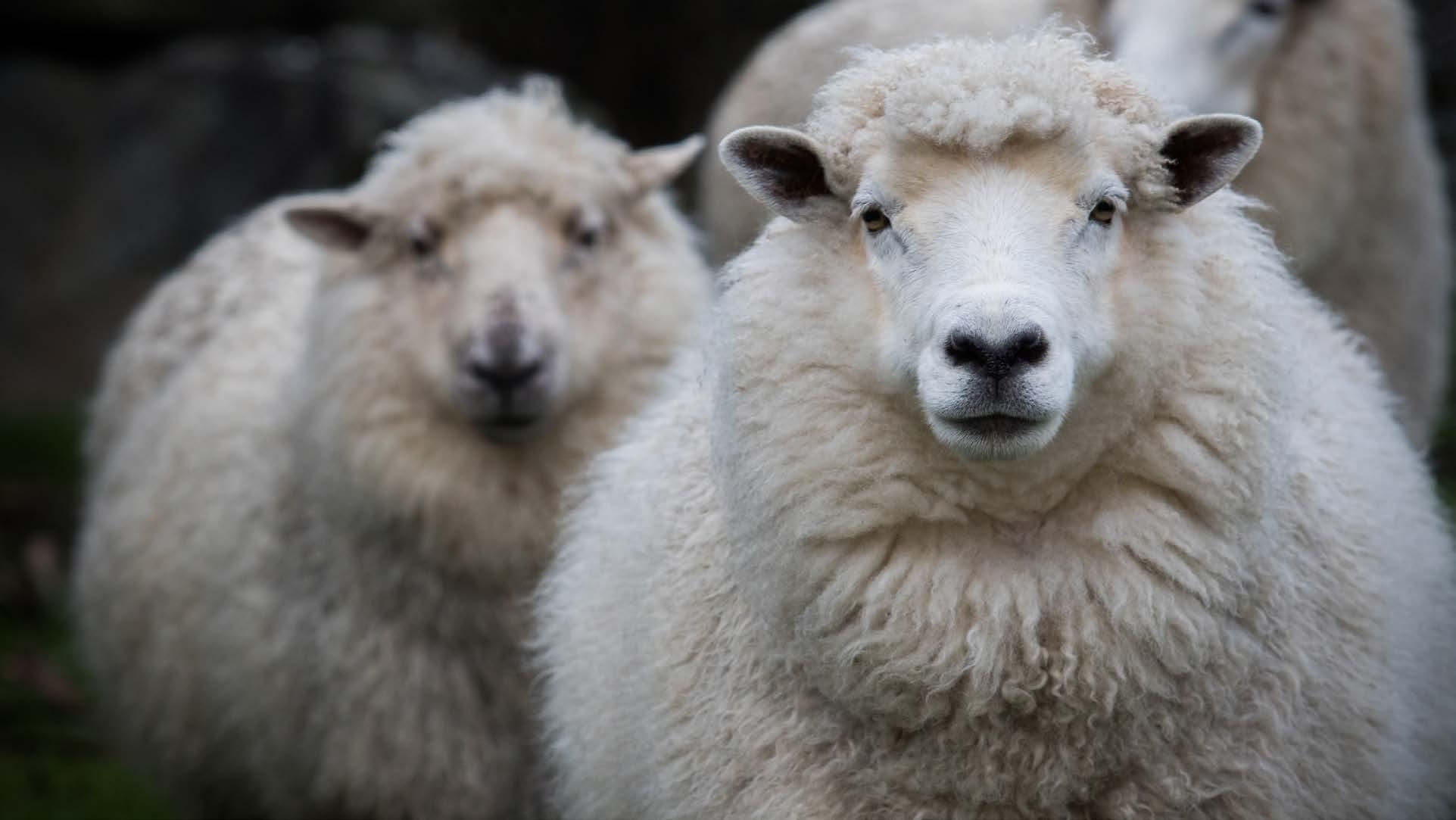
4. Freedom to express normal patterns of behavior by providing sufficient space, proper facilities, and company of the animal’s own kind
5. Freedom from fear and distress by ensuring conditions and treatment which avoid mental suffering.
+ All wool must be mulesing free
Eton is certified for The Responsible Wool Standard (RWS), independently certifying animal welfare and land management practices in wool fiber production, tracking the material from farm to final product. It is a certification for wool farmers and sellers that aims to improve the welfare of sheep and the land they graze on.
By 2030 all materials from animal origin need to be in line with our goal of having 100% “more sustainable materials”.
We are certified to the RWS, certified by Control Union CU891921
“It is a part of our journey of finding purpose for our waste.”
– Johanna Kinander

JOHANNA KINANDER, HEAD OF ASSORTMENT,
Introducing the Recycled Shirt
With the Recycled Shirt, Eton showcases a pragmatic approach towards addressing environmental concerns in the industry. The shirt comes in two models, making its debut in 2024.
“We have developed a special product – a casual shirt crafted from a blend of new material and collected fabric scraps. It is part of our journey of finding purpose for our waste, finding more circular ways of working,” Eton’s Head of Assortment, Johanna Kinander says.
The technical challenges of the project include the careful process of creating a textile that aligns with Eton’s high-quality standards. The Italian fabric supplier Albini Group has been key in research and developing new methods.
“We aimed for a lightweight fabric, but working with shorter recycled fibers has brought its challenges. During the development we learned that the initial fibers mix was better suited for apparel with a more relaxed look. Our main focus at this stage is catering to those who appreciate a more casual wardrobe. We’ve identified an audience that gravitates toward flannel, denim and similar shirts for everyday use,” shares Kinander.
“Another lesson moving forward is to be extremely careful about color blending. Mixing colors easily results in a mottled look, more suitable for casual shirts than formal ones. It’s all
about keeping white textiles separate and, for instance, blues on their own.”
As Eton explores incorporating recycled material, Johanna Kinander underscores the company’s unwavering commitment to quality.
“Our shirts must always be top-notch, with no compromises being made. The new fabric carries a bit more weight and texture due to the recycled fibers. This aligns well with the aesthetic we’re aiming for in our casual shirts, but there is still work to be done before we can start using it for finer textiles,” she explains.
Beyond the creative process, the project has encountered complications related to waste transport regulations within the EU.
“Currently, we collect cutting waste in Romania – the leftover fabric scraps from sewing our shirts. But the shredding, spinning, weaving and finishing are based in Italy, Hungary and the Czech republic. A way around the bureaucracy would be to place the entire process in one place, but that’s not the reality today.”
Repurposing Surplus Fabric Quantities
Our fabrics can be used for so much more than shirts. That is why Eton has joined forces with Rekotex to repurpose leftover fabrics. Rekotex offers quality leftover fabrics from renowned brands, available in smaller quantities, with fast delivery. Often, fabric suppliers have a high minimum order quantity. For smaller companies, it is a great idea to buy fabrics that other companies have leftover. It is a win-win concept.
“My goal is that fashion companies should check what other clothing manufacturers have over in stock, before ordering from fabric producers,” says Marie Jonsson, founder of Rekotex.

THE ALMEDALEN WARDROBE
Eton selects the fabrics, initially focusing on the inventory in Gånghester, with plans to expand to their stock in Romania. By utilizing Rekotex’s platform, customers gain access to a variety of fabrics along with essential information, while Rekotex manages communication with potential buyers. The collaboration aims to repurpose fabrics that Eton cannot use, promoting sustainability in the textile industry.
The Almedalen Wardrobe initiative offers politicians and attendees the chance to borrow clothes for their events on stage at the biggest Swedish political event of the summer, the Almedalen-week. Eton proudly participated, providing summer shirts for the cause, making sure visitors could dress stylishly in a sustainable manner. Our Head of Assortment, Olof Enckell, carefully selected suitable shirts, and we were delighted by the positive feedback.
The initiative, led by Svensk Handel and the Swedish Fashion Council, has become a favorite among politicians, opinion leaders, and others. Several party leaders have already donned the wardrobe items during speeches. The project aims to ignite conversations about sustainability, including garment care, recycling, and digitalization.
Responsible Water Strategy
To reduce our impact on the environment and ensure responsible water use, we have implemented various measures. Eton utilizes the municipal water supply and waste-water treatments in our own operations. Through our code of conduct we ask our partners to use water responsibly and strive towards reducing their consumption by setting reduction targets and monitoring their water use regularly. Water shall be treated and reused when possible.
MEASURING AND FOLLOW UP
Starting in 2022, and continuing into 2023 and onwards we assess our Tier 1 and 2 suppliers’ water usage, focusing on those with water-intensive processes for follow-up monitoring. Our commitment to sustainability includes closed-loop systems in chemicalintensive processes like non-iron finishing, ensuring minimal environmental impact. In addition, all materials we use require water in their production. To measure our water consumption for tier 3–4, we have calculated our water usage based on MSI Higg’s Water scarcity numbers (MSI 2022). Water usage has decreased in 2023. We bought slightly less cotton and changed some suppliers, and in addition we focused more on saving water in our supply chain. Production in meters and pieces decreased slightly compared to 2022, and we also cut down on material weight.
Given our heavy reliance on cotton—a water-intensive material—we’re closely monitoring our water footprint, totaling 30 707 721 cubic meters.
Virgin cotton accounts for 70% of the water usage, while organic cotton uses only 8.6%, despite making up a larger share of the total material weight. Specifically, conventional cotton constitutes 30% of the material, and organic cotton comprises 36%.

50% of our Tier 1&2 suppliers have water intensive operations.
70% of our suppliers with wet processes has a set reduction target for water usage.
50% have waste water treatment
WATER USED IN TIER 3+4. BASED ON MSI HIGG 2023
WATER SCARCITY NUMBERS (both textiles and packaging)
FIG 14. WATER USE
“ There’s been a significant change in the collective mindset”
– Johanna Tauriainen
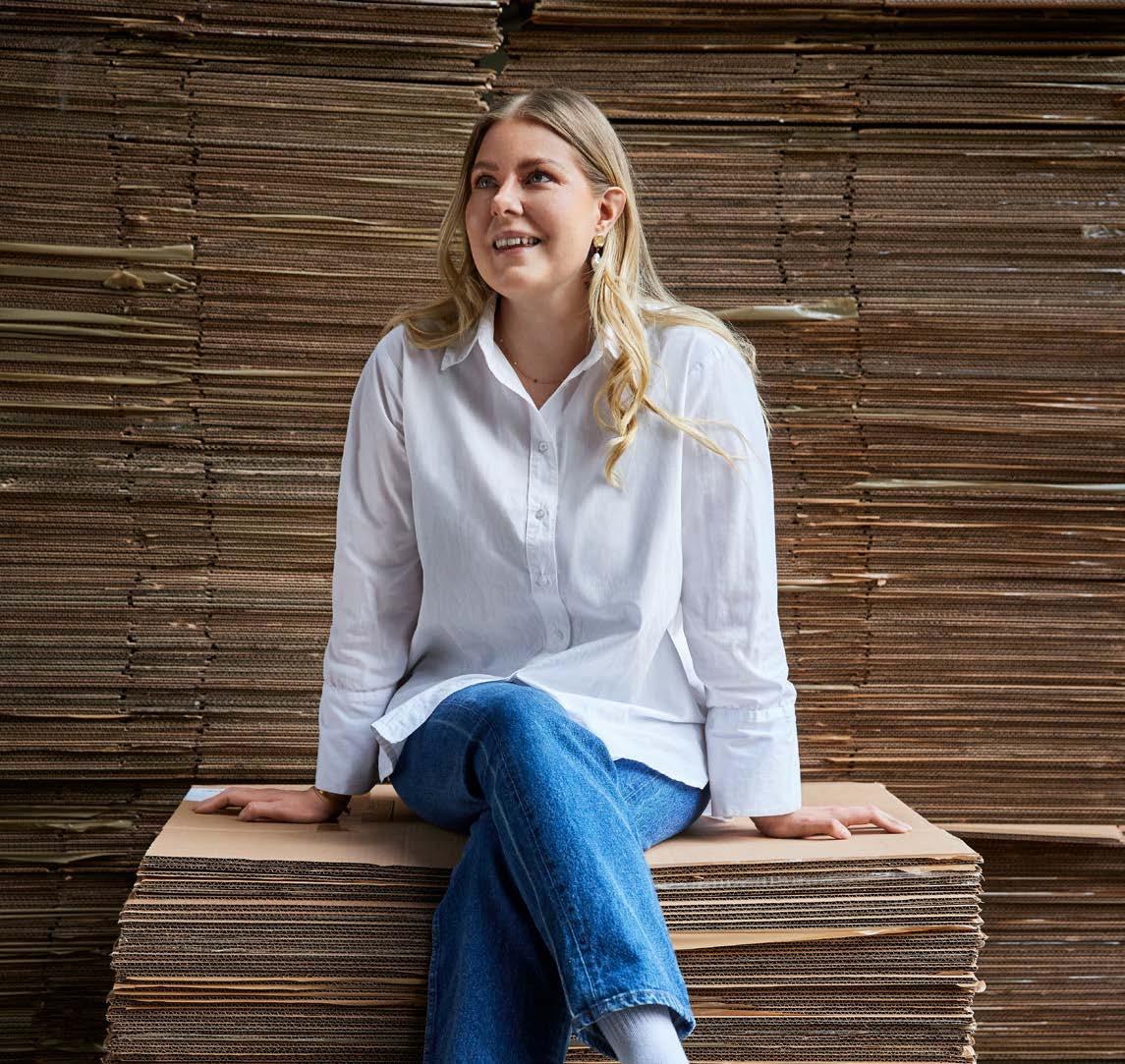
JOHANNA TAURIAINEN, JUNIOR LOGISTICS DEVELOPER,
Transforming Waste into Efficiency
In
the heart of Eton’s warehouse, Junior Logistics Developer Johanna Tauriainen is leading a quiet revolution. Her 2023 mission was crystal clear: trim down combustible waste.
“We aimed to halve it, reached 30%, and now 2024 is the year when we are looking forward to reach the full target,” says Tauriainen.
The overarching strategy revolves around the art of reuse, focusing on both the biggest cartons, with a capacity for 16 shirts, and the individual boxes for each single shirt.
All used boxes are assessed, and those that are considered clean and intact are used again. The effort primarily impacts the central European hub in Gånghester, Sweden, but there are also plans to implement it in Eton’s North American warehouse in Alpharetta, Georgia.
Yet, waste reduction isn’t the only achievement for the warehouse project. In 2023, Eton initiated a thorough analysis of shipments and made a significant discovery
“A substantial portion of all our shipments consisted of 9 – 12 shirts. We revamped, introducing a new box for 12 shirts. This has led to less empty carton space – less air that is – being transported and better efficiency overall.”
Seven years ago, when Johanna Tauriainen stepped into Eton, the company’s recycling ethos was less pronounced.
“We weren’t particularly focused on recycling, but there’s been a significant change in the collective mindset,” she reflects.
Johanna’s journey embodies Eton’s growing approach to make waste reduction not just a goal, but a daily mission throughout the entire operation.
Waste Management
In 2022 we started measuring our waste management at our HQ and our two warehouses, providing a baseline for measuring improvements and potential cost savings in recycling which have shown results in 2023. Our waste management partners are following the legislative obligations. In our Gånghester warehouse, we have made recycling more efficient, leading to increased recycling rates. Reuse practices include repurposing inbound inner boxes for outbound packing, and cardboard boxes that are being reused and recycled. Waste sorting efforts that optimize our recycling are more detailed at our Swedish facility compared to the facility in the US, but we are working on improvements and are tracking fractions there as well. At both our stores and showrooms, we follow the available waste sorting, but in our stores we do not currently have a system in place to track waste by fractions. We have dialogues with our different landlords regarding the importance of recycling and how their waste management is set up. We are tracking our textile waste generated in our upstream activities.
Overall, 85% of measured waste was diverted from disposal through reuse and recycling. Waste management measurements in 2022 have served as a baseline for future improvements and cost savings in recycling, with a 44% decrease seen in 2023.

The fashion industry heavily relies on chemicals, particularly in dyeing and finishing processes. These are crucial for a brand like Eton, known for our wrinklefree shirts. Chemical management spans the entire value chain from worker safety to customer health. At Eton, suppliers adhere to the three areas described in the Eton Standard: Performance and Quality, Chemical Restrictions and Flammability. It is based on REACH, ECHA’s Candidate List, and the OEKO-TEX standard, limiting dangerous substances. This guarantees product safety throughout the lifecycle. No noncompliance incidents regarding health and safety impacts were reported in 2023.
“It will be interesting to see where this journey takes us.”
– Jakob Lundén

Signature Points for Old Shirts
JAKOB LUNDÉN, GLOBAL RETAIL SALES MANAGER,
As the global retail sales manager at Eton, Jakob Lundén is leading the take-back initiative, channeling a commitment to sustainability into action. His role in charge of global brand store operations positions him as a key player in implementing and promoting the program.
“We have set up the take-back program in all of our stores, where customers can return any Eton product for recycling and earn 250 points in our signature club, no matter the item,” Lundén explains, highlighting the benefits for conscious consumers.
As Eton’s renowned shirts are built to last, some of the returned garments are old models that have been discontinued for years.
“Our shirts are known for their durability, and it’s not uncommon that we receive shirts that are a decade old in the take-back program,” says Lundén.
Eton’s commitment to sustainable practices goes beyond recycling. “When we receive a shirt or another garment, it doesn’t simply end up in recycling. Some items are reusable or can be sold second-hand, while others are transformed into new textiles.”
The take-back system is separate from the complaints, with less than 1% of Eton’s products falling into the claims category.
Collaborating with I:CO, the take-back system is part of a global in-store program that supports innovative recycling technologies.
“Our modest objective for 2024 is to collect a hundred kilograms of textiles, with plans for an ambitious increase in the coming years,” Lundén shares.
To reach out to every customer informing about the initiative is a challenge, but in Eton’s loyal customer base many clients have become aware of the project from visiting the stores, and there has been information in newsletters and other promotional efforts. The initiative has received positive feedback, though of course opinions vary.
“We have received a lot of praise. That being said, those who speak up are likely the ones who appreciate it. But some want higher rewards. It will be interesting to see where this journey takes us,” Lundén concludes.
From left to right: Anders Lannér, Wilma Olsén, Jakob Lundén
Empower People
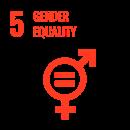
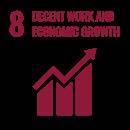


Our commitments:
· Ensure safe work and labor rights, free from harassment and discrimination in our supply chain
· Advocating inclusion & diversity
· Map the wage levels at 100% of our main suppliers in production
· Work with our sewing factories to provide their workers with a fair wage
· Bi-annual audits of all our sewing factories, accessories suppliers and fabric suppliers

Assessments for Holistic Sustainability in our Supply Chain
HUMAN RIGHTS, LABOR LAWS AND FREEDOM OF ASSOCIATION
We are committed to ensure compliance with human rights, labor laws, and freedom of association in agreements in our supply chain and in close collaboration with our suppliers. Our Code of Conduct covers health and safety, fair working conditions, fair pay, and anti-corruption. We align with national legislation, preventing violations across all operations. Our Code reflects the UN Global Compact’s Ten Principles and key international agreements: the UN Universal Declaration of Human Rights, the International Labor Organization Conventions, the UN Convention against Corruption, and the Rio Declaration on Environment and Development. Potential new suppliers undergo sustainability assessments, and when they are approved as a supplier they are invited into our supplier sourcing module where they report on our selected questionnaires. Neither our audits or the suppliers’ self assessments in Worldfavor have identified any risks regarding freedom of association, child labor, or forced labor.
THIRD PARTY AUDITS
In 2022, we audited all our Tier 1 suppliers and started auditing our accessories suppliers, using a third-party auditor, Intertek. In 2023, we have audited the rest of our Tier 1–2 suppliers. Through bi-annual audits we are reauditing all suppliers again starting in 2024, including new suppliers.
IN THE ESG AUDITS, THE FOLLOWING FOCUS AREAS ARE ASSESSED:
· Work environment facilities
· Emergency response capabilities
· Mechanical operation safety
· Document and record keeping
· Worker feedback and participation
· Review and improvement measures
· Child labor
· Forced labor
· Discrimination, harassment and abuse
· Workers’ freedom of association
· Labor contract
· Wages and working hours
· Waste and gas emissions
· Compliance with regulatory requirements
Each area of the audit is scored on a scale of 0–100, which then contributes to the overall score. Additionally, we compare the results to global and local averages, such as the minimum wage in the country or the country’s average wage, to ensure a fair understanding of the scores. Two new Tier 1 suppliers were added during the year, and both were screened using our Sustainability tender questionnaire.
WAGE LEVELS IN SUPPLY CHAIN
During 2022 and 2023 we mapped the wage levels in our supply chain, in line with our goals on fair wages. The objective is to establish a baseline and an understanding of wage levels at the facilities in relation to minimum wage and country averages. During the audits, wages are one important factor that we assess. The auditor reviews whether employees receive a pay slip and if payments are made correctly in accordance with legal requirements, including all legally required deductions like pension, sickness, and income tax. The auditor also confirms that employees receive paid annual leave and social insurance payments are made to the relevant authorities. All our suppliers are required to pay a fair wage and comply with local regulations, as they have signed our Code of Conduct.
During 2023 we implemented a sustainability reporting system called Worldfavor with two modules: One for our own follow up of scope 1-3 and the other for Supplier Sourcing. The suppliers are invited to the module, and do their reporting into the system. We have a dialogue and follow up on the answers.
91% OF OUR SUPPLIERS HAVE COMPLETED THEIR QUESTIONNAIRES, OUT OF THESE:
80% have an anticorruption policy
65% of the employees having received an anti corruption education.
26% have a biodiversity policy
90% have a COC or COBE
95% have a whistleblowing function
100% have a grievance/complaints handling mechanism related to employee matters.
75% have a human rights policy
68% have an environmental policy
65% have a health and safety policy
60% use gas as fuel
68% have a waste management policy
GENDER REPRESENTATION:
68,64% of employees are female
34,74% of managers are female
21,08% of board members are female
INCLUSION AND DIVERSITY
Eton connects workplaces in different countries and co-workers of different genders, ages, and backgrounds. Actively working with inclusion and diversity in the workplace is a natural part of the current HR function. As a clothing company, we know that parts of our supply chain can be a means to provide employment for women, especially through our sewing factories.
GDPR
The GDPR (General Data Protection Regulation), stipulates that EU and EEA companies cannot collect, process, or disclose sensitive personal data without explicit consent. This includes information on race, ethnicity, political opinions, religion, trade union membership, genetic or biometric data, health data, and sexual health, practices, or orientation.
FIG 16. SUPPLY CHAIN INFORMATION, GENDER:
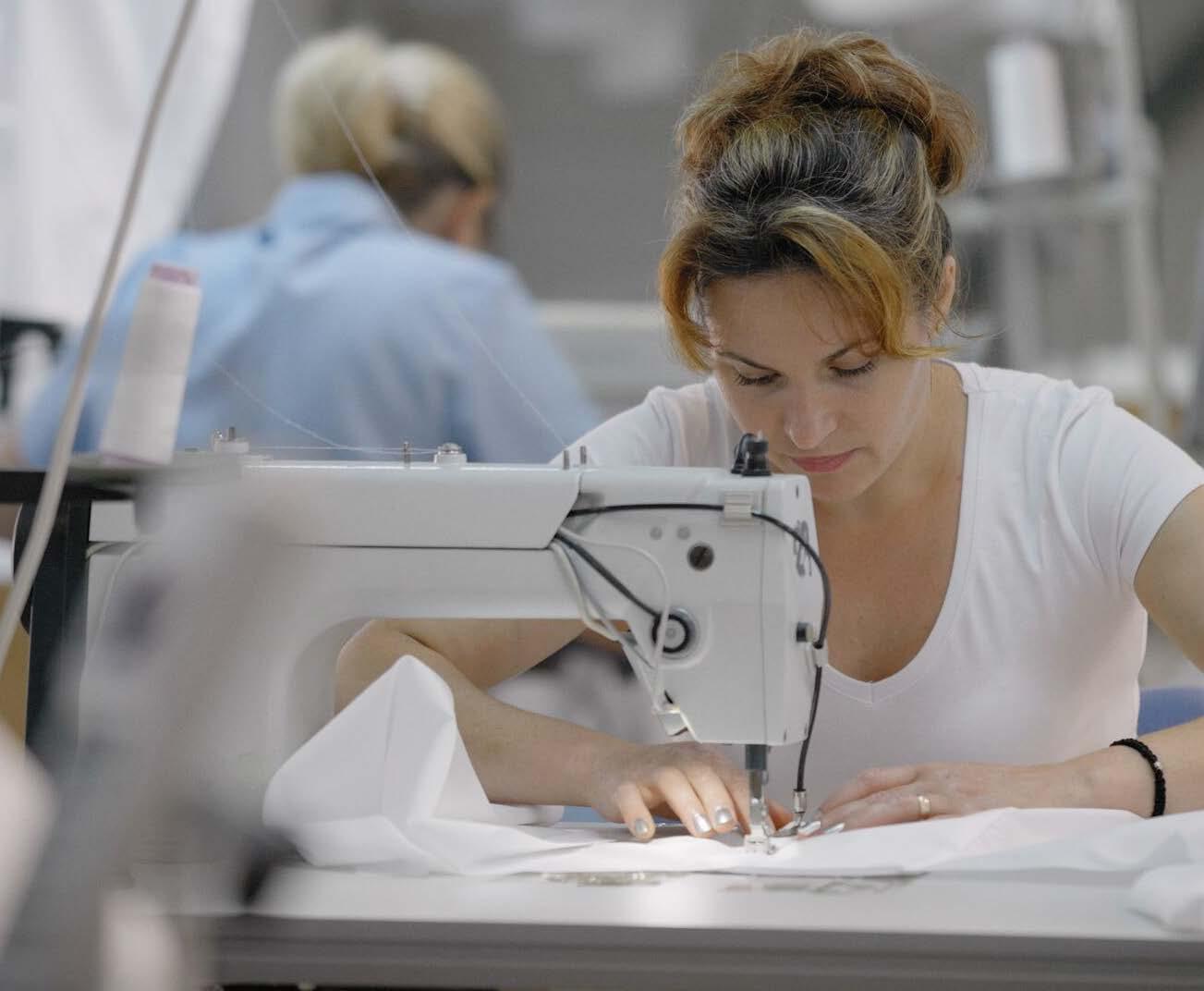
LONG-TERM PARTNERSHIPS AND CLOSE COLLABORATIONS
At Eton, we prioritize collaboration and long-term partnerships to ensure longevity, quality, and fair working conditions. By actively engaging in the workplace and monitoring daily operations, we enforce our guidelines comprehensively. Our focus on sustained relationships creates an increased likelihood of economic stability for our suppliers, enabling them to plan and recruit confidently. As a company that relies on expertise within sewing, a traditionally female craft, we know that our partnership creates jobs and opportunities for women to specialize and gain valuable skills in developing parts of Europe – a reflection of how we were founded.
ETON SYSTEMS
Several sewing factories have installed Eton Systems to enhance the efficiency of their production processes, increase opportunities for quality control, and provide ergonomic benefits, such as reducing the load on operators and lowering the risk of strain injuries.
LOCAL REPRESENTATIVES
In line with our belief in collaboration, we have local representatives, employed directly by Eton, on location in Romania, Lithuania, and Macedonia, interacting on the shop floor at our partnering Suppliers.
“Our consumers are interested, and they want to know the details.”
– Maria Lantz

MARIA LANTZ, QUALITY COORDINATOR,
Additional Certifications to Highlight Social Impact
As Eton strives to combine style with responsibility, Maria Lantz leads the charge for sustainable fashion certifications. She gives insights on the process of adding new certifications, to develop Eton’s sustainability work.
“During 2023 we have added GRS (Global Recycled Standard) and GOTS (Global Organic Textile Standard) to our existing certification lineup, to emphasize our dedication to responsible fashion,” Lantz says.
She highlights the stringent requirements of these certifications. GOTS validates that the entire supply chain – from farmers to spinners – adheres to the highest ecological standards.
“It’s definitely about more than just organic products. You could call it a holistic approach, covering water purification, packaging materials, and even details like buttons and zippers. In addition, the new certifications also weigh in social aspects, looking at working conditions and worker’s rights.”
Eton’s existing certifications, OCS and RWS, affirm the commitment to sustainability within organic content and responsible wool sourcing, while the Recycled Claim Standard (RCS) and Global Recycled Standard (GRS) set the criteria for recycled materials. GRS is new to Eton, and includes a higher minimum recycled content percentage and additional social and environmental requirements related to processing and chemical use.
The Global Organic Textile Standard GOTS is a stricter certification to organic content than OCS. Certified companies need to adhere to strict climate, environmental, social governance and chemical requirements, with full traceability of the material throughout the value chain. Only textile products that contain a minimum of 70% organic fibers can become GOTS certified.
Empowering people is one of Eton’s core values. Maria stresses the importance of independent third-party certifications, offering consumers the ability to make informed choices without falling prey to greenwashing.
“We’re adding GOTS not only because it’s widely recognized, but also for the higher standards it sets. Our consumers are interested, and they want to know the details – from chemicals to processes. It’s about giving them the power to shape their consumption choices.”
Eton’s first GOTS and GRS-certified products are launched during the fall 2024.
HUMAN RESOURCES
INITIATIVES
Eton’s HR team works globally to address all human resources related questions, with a focus on building a strong value-driven organization. We are committed to providing healthy workplaces with an inclusive culture. We believe in empowering people to be the best they can be. With that as our goal, and respect and kindness as our guiding stars, we can make Eton a positive influence in the world. Leadership support is a focus area, with frequent meetings and training for all leaders. The guiding principle is that all actions and initiatives concerning Eton staff are to align with Eton’s Company Values.
All employees have conducted two mandatory feedback sessions and a Code of Conduct training, setting the stage for an enhanced education program. The HR department has rolled out a new digital onboarding program for all new employees to facilitate a supportive and comprehensive work environment. An average of 1,7 hours of training per employee was utilized during 2023. An HR SharePoint site has been established, and we have introduced digital training courses through SANA and SECTION. We are actively amplifying our strengths while tackling the areas that need a boost. This approach isn’t limited to HR alone – every department is progressing within their own areas of responsibility.

SUCCESSION PLANNING
During 2023 our succession planning efforts yielded results. We have hired 9 individuals for leadership positions, with 5 of them being internal promotions within the organization.
• The succession plan covers 7 out of 9 positions in the management team (including CEO)
• 25 positions in total identified as critical roles (including the management team)
• 2 critical roles have a current vacancy
• 75 % of the succession plan coverage is in place
• Goal for end of year 2024 is to have succession plans for all Critical Roles
• Out of 10 new manager appointments in 2023, 6 were filled by internal candidates
• 5 future stars and top talents are identified ready to step into new challenges
• Active work since 2022 including 2024 forecast that 20 roles will be filled through internal pipelines
MENTOR PROGRAM
We have initiated a pilot mentorship program where the CEO, along with two other members of the management team, coaches, and mentors three of our future stars within the organization. The initiative supports internal growth among our employees and is key to succession planning and retaining our top talent. The program has been a success with both mentors and mentees and HR plans to expand it during 2024.
NEW EMPLOYEE BENEFITS PACKAGE
During the year we have developed Eton’s benefits package to better align with the feedback we received in the Great Place to Work survey. Starting Jan 2024, we have improved and tailored our benefits package to create a more inclusive workplace environment, better meeting the needs of our employees.
For service milestones of 10, 15, 20, 25, and 35 years, an extra week of vacation is granted every fifth year, except for the service milestone of 30 years. At 30 years, an additional month’s salary is awarded. Upon reaching 50 years of service, the employee receives an additional month’s salary and a gift of 15,000 SEK.
We have also enhanced the wellness benefit, increasing the fitness contribution with 1000 SEK to 3000 SEK/ person/year, and as for parental leave Eton now offers employees taking at least 12 weeks of fulltime continues parental leave the opportunity to return to work with reduced hours for one month at 50% capacity, while maintaining full pay.

ETON ENGAGEMENT AWARD
In 2023 we introduced an internal award aligned with our company values. The award aims to boost engagement, recognize high performers, and retain talent within our organization. Nominations are based on various 8 different categories, each reflecting on our commitment to our values. All winners, 8 in total including one team, were recognized, and celebrated at our yearly conference Eton360.
Categories:
Employee of the Year, First Class Service of the Year, Hidden Treasure of the Year, Exemplary Leadership of the Year, Most Creative Solution of the Year, Talent of the Year, Achievement of the Year, Team of the Year.
COLLECTIVE BARGAINING AGREEMENTS
All employees within the Eton Group that are employed in Sweden, i.e. 70% of our total employees, are covered by different collective bargaining agreements with Unionen, The Swedish Association of Graduate Engineers, Ledarna, IF Metall and the Swedish Trade Federation. TEKO is the employer organization for Eton’s agreements with Unionen and IF Metall. Svensk Handel is the employer organization for Eton’s agreement with Handelsanställdas Förbund for Retail. Employment agreements for employees outside of Sweden are defined and based on local collective bargaining agreements where applicable. Business Sweden is our partner in most European countries, assuring that we live up to local regulations and legislation regarding employment and reimbursements. In the USA, there are no collective white collar bargaining agreements in line with our type of business, thus our agreements are market based. 2023 saw no recorded incidents of discrimination and no corrective actions had to be taken.
DAVID KÖRÖNDI, HEAD OF HR, BIRGITTA KÄLLÉN, PEOPLE & CULTURE MANAGER,
An Empowering Educational Initiative
As part of Eton’s HR team, David Köröndi and Birgitta Källén have been responsible for implementing the company’s latest venture – an educational program, perfectly aligned with the core values.
“At Eton, everything we do connects back to our values. In 2023, we made a significant drive to promote internal education, and the response has been tremendous,” David Köröndi shares.
Eton has partnered up with Section, a renowned leader in the business education sector, offering a diverse range of courses, workshops, and sprint educations.
“We now have access to a wide selection of courses and training programs, spanning from business and management, to marketing, technology, and more.” Köröndi says, emphasizing Eton’s employee-driven approach to course selection. “We are dedicated to finding better solutions, and working smart is one of our fundamental values,” he adds.
Aligned with the value of “One Eton,” the courses are accessible to all employees, to encourage a continuous learning mindset, regardless of current roles.
“Whether you want to enhance your leadership abilities, acquire new skills, or delve into the latest industry trends, there is something for everyone,” says Köröndi.
“Our hope is that all Etonians feel that they are evolving both in their everyday responsibilities and for the future”, says Birgitta Källén.
Having personally taken courses like “Productivity and Performance” and “Leading through Change,” she highlights the practical learning aspect.
“One of the great things with Section is their impressive roster of industry experts and experienced instructors, who share their knowledge and insights with the learners,” shares Källén.
“The engaging interactive content makes the learning experience both enjoyable and enriching.”
The program was initiated after feedback from the recent Great Place to Work survey, where a majority of the Eton staff expressed an interest for more learning opportunities to enhance their professional development. David Köröndi circles back to Eton’s core value of empowering people.
“We trust each other to make decisions, promoting continuous growth both for individuals and for the company as a whole.”
“ There is something for everyone.”
– David Köröndi

Eton’s HR team (left to right) Per Norgren, David Köröndi, Birgitta Källén (standing)
, Maria Wennersten
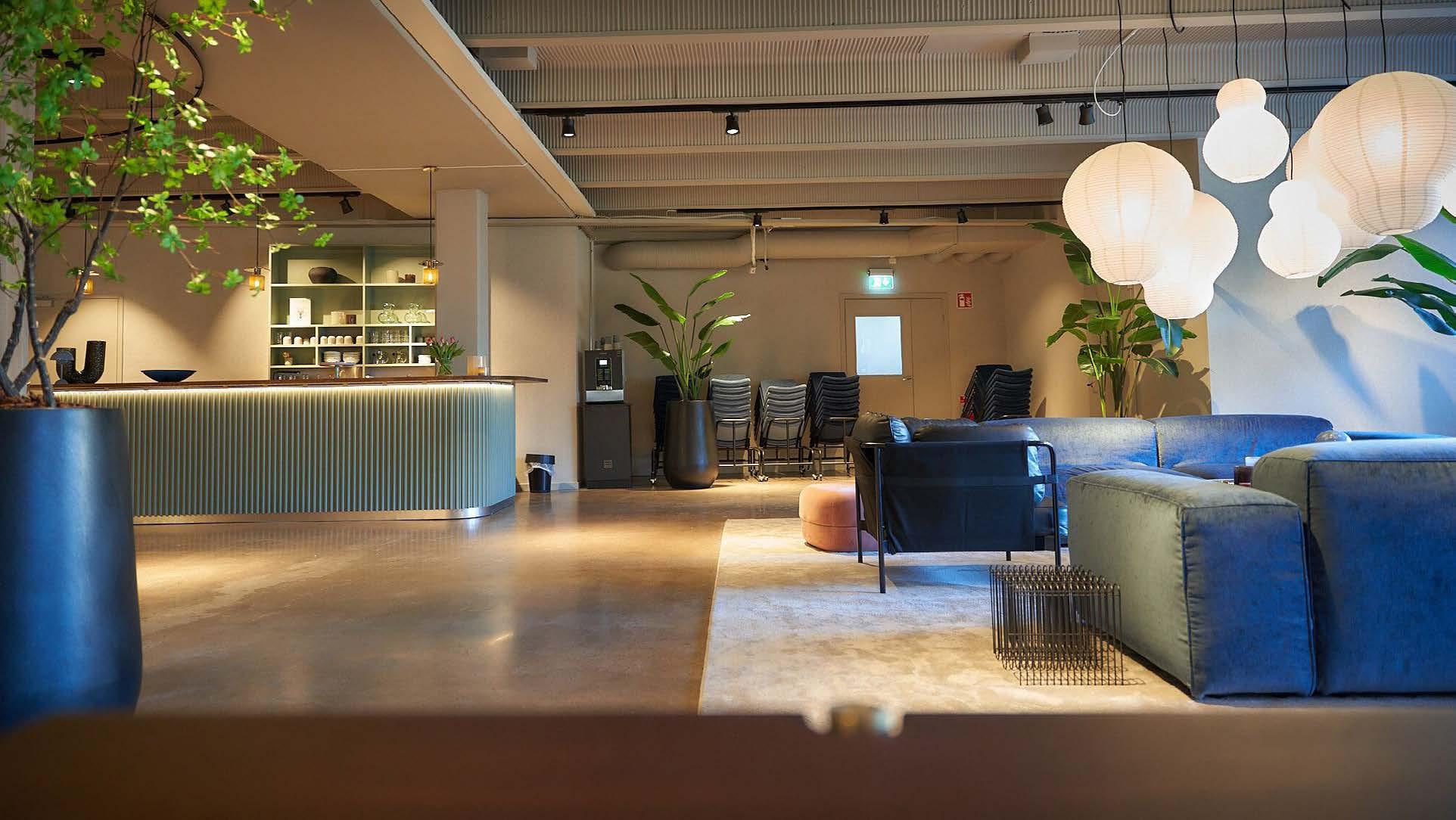
Improvements at Headquarters
BUILDING & FACILITIES
Our Gånghester HQ, spanning 3500 sqm, saw significant upgrades this year. We opted for relining pipes instead of replacement for a smart and resource-effective plumbing solution. Renovation of the deteriorating parking area stone wall enhanced safety and aesthetics. Replacing radiators near roof windows ensures improved temperature consistency. By implementing a fully upgraded security system at both our HQ and external warehouse, in combination with synchronized lighting at HQ, we’ve not only bolstered security measures but also significantly reduced unnecessary energy consumption. This commitment to modernizing our infrastructure aligns with our sustainability goals.

WASTE MANAGEMENT
In our HQ kitchen, waste management was revamped, now sorting plastic, metal, and paper alongside other items. Waste measurement is being implemented to track and reduce consumption. Initial challenges were overcome, and the feedback from our team has been overwhelmingly positive.
Equality and Diversity –Good Jobs for All
A prerequisite for a thriving Eton across all our workplaces is to map and understand where we are when it comes to gender parity and fair reimbursement. It provides the understanding needed for ongoing actions for diversity and inclusion within the Eton Group, contributing to transformation in line with SDG 5. At Eton we map our gender parity on a yearly basis. During 2023, 62 new Full Time Employees were hired and out of them 29 were women. 6,8 FTEs were on parental leave.
* Managers: Spans from specific responsibility, to low, mid and higher management. Includes all Eton Group employees globally with staff responsibilities. Note that previous years (2019–2021) we included expert functions with area management but no staff responsibility under the title “Manager”.
FIG 18. GENDER PARITY – PROGRESS REPORT
FIG 17.

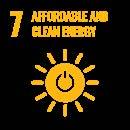


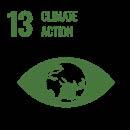
GOVERNANCE AND FINANCE
Prosperity for Transformation

Our commitments:
· Ensure that we contribute to prosperity through our business practices in all the markets we are active in
· Full transparency throughout our supply chain by 2025.
Business as Usual Is Not an Option
As a clothing company, we know that we have a big climate impact and that we put a strain on the environment. This means that we need to transition transition into a way of operating within the planetary boundaries. Reducing emissions through climate action must happen swiftly and decisively, within the next ten years. We recognize the need to avoid climate change by limiting global warming below 2°C, and pursuing a limit of 1,5°C, as stated in the Paris Agreement. We are committed to be net zero by 2050.
REDEFINING HOW WE OPERATE MAKES BUSINESS SENSE
We have defined goals and action points. Certifications and collaborations lay the groundwork for new processes and material guidelines. We optimize engagement across our operations, encouraging everyone to have a sustainable mindset. Alongside our formal governance, the Sustainability Steering Group coordinates efforts at management level. Long-term partnerships allow us to offer suppliers stability and support in transitioning to sustainable practices.
We have mapped our emissions in scope 1, 2 and 3 with a high degree of actual data – enabling structured supplier and stakeholder dialogue and a transitional emission reduction roadmap. By mapping our supply chain, we prioritize

suppliers for collaborative efforts in shifting to renewable energy. We map the usage of our existing suppliers and, based on that, engage in a dialogue about how they should transition while we support them with our expertise. Additionally, we evaluate new suppliers based on how they meet our requirements for renewable energy.
Human rights form an umbrella for our social compliance commitment – we must play our part in transitioning towards gender equality and diversity, and good jobs and economic growth for all, led by our value One Eton and the UN definition of prosperity: “To ensure that all human beings can enjoy prosperous and fulfilling lives and that economic, social, and technological progress occurs in harmony with nature.”
“ The reporting helps us decide where to focus our efforts.”
– Lina Ödeen

LINA ÖDEEN, HEAD OF SUSTAINABILITY,
Gathering ESG Data for Governance
During the past year Eton has intensified their efforts in ESG reporting. Eton is reporting according to GRI (Global Reporting Initiative) for the third year and gearing up for CRSD. Lina Ödeen, Head of Sustainability, sheds light on the sharpened focus on collecting actual data from suppliers.
“Knowing where you stand is key to decide your course forward,” she says, emphasizing the significance of companies sharing and accessing their numbers. “We realized that we needed system support to ensure reliable data and comparability over time. Additionally, we wanted to track more data points.”
Eton began implementing a new sustainability reporting system among its suppliers in 2023, using the Worldfavor platform.
“Worldfavor offers two reporting modules, where the first one is filled out by the suppliers themselves,” Ödeen explains. “As a purchaser, we cannot, and should not, influence their answers.”
The sourcing module involves reporting from Tier 1 (direct suppliers) and Tier 2 (fabric and weaving) on relevant metrics in 16 different forms, covering topics ranging from governance and social aspects to environmental practices.
“It´s crucial to work consistently on these issues to drive lasting change and to live up to our commitment and goals,” Ödeen says, highlighting the importance of continuous improvement.
While transitioning to the new system required a lot of work, Ödeen explains “This initiative has streamlined our reporting process, making it more systematic and easier to track over time. To implement it was a significant effort from everyone here, but we believe it was worth it.”
The system’s enhanced capabilities for comparison with historical analysis has been a game-changer.
“We can now track progress more frequently and look closer at a variety of specific areas, like transport, waste management, labor rights and much more,” Ödeen notes. “The comparability and traceability reduce the risk of reporting errors.”
The second module is completed by Eton, covering climate-affecting emissions and energy consumption, as well social impact, throughout Scope 1 – 2.
“We’re proud that 98% of our figures are based on real numbers. It provides a solid foundation to target resources effectively, and it’s essential for transparency. For example, a Code of Conduct would be meaningless if we didn’t know the situation on the ground,” Ödeen shares.
With ambitious emission reduction goals in place, Eton relies on accurate data. Lina Ödeen underscores the critical role of sustainability reporting to drive a continuous development in the supply chain.
“We have set high goals, and gradually, legislation will become stricter, so it’s good to have done the groundwork. The reporting helps us decide where to focus our efforts.”
Integration of Sustainability
To reduce Eton’s environmental impact and create value for stakeholders, we have a strategic approach to sustainability, driven by impact-analysis, ambitious goals, consumer insights, stakeholder input and company values. Our efforts involve structured workstreams and engaging our employees to drive change.
Our strategy and sustainability topics are overseen by the Board of Directors and the CEO. Eton’s Head of Sustainability is supported by a steering group with the mandate to take decisions in line with the strategy. The steering group meets monthly to drive the sustainability agenda forward with a focus on ideation and problem-solving.
During 2023, the Sustainability Steering Group included representatives from Assortment, Supply Chain, Marketing, E-com and Wholesale, and our CFO. Any remediation of negative impacts is discussed in the steering group and reported to the management team and CEO. Our strategic actions are based on material topics identified in impact and stakeholder analysis – the results are found in our materiality matrix.
The yearly Sustainability Report is approved at the Eton Group’s Annual General Meeting, in May 2024, which includes the appointment of the board of directors, their compensation, and the appointment of the Chair, Vice Chair, and other members. The Eton Group’s remuneration is adopted yearly by the board of directors. The remuneration policy has not been adjusted during the year.

INFORMATION AND COMPETENCES
HEAD OF SUSTAINABILITY AND CEO
Eton’s Head of Sustainability leads our global sustainability strategy, heads the Sustainability Steering Group, develops goals, and educates our team in collaboration with various departments. Monthly meetings with the CEO cover progress, goals, directives, and initiatives and include updates on status versus goals, present and future issues, laws and regulations, needs and requirements, and Sustainability Steering Group actions, workstreams and employee-led initiatives.
BOARD OF DIRECTORS
The Chair of Eton’s Board oversees human rights, environmental, and climate impact. Lina Ödeen, Head of Sustainability, provides biannual
in-depth analyses to the Board. Challenges, progress, and future focus areas are discussed. The board undergoes yearly evaluation by owners, covering skills and insights in economic, environmental, and social areas, coinciding with the Annual General Meeting (May 2024). The set up of the board changed towards gender equality in 2023, and the board representative is 50/50.by the owners yearly on skills and insights, including but not limited to economic, environmental, and social topics to secure necessary competence. The evaluation takes place in conjunction with the Annual General Meeting (May 2022). During 2022 there were no changes in the board. The evaluation for 2022 takes place at the General Meeting held in May 2023.
BOARD OF
DIRECTORS MANAGEMENT TEAM
Board of Directors oversees the company’s strategy and sustainability topics. The CEO reports to the Board of Directors. Eton’s Head of Sustainability reports to the CEO.
FIG 19. REPORTING STRUCTURE


Identified Financial Risks
CLIMATE CHANGE IMPACTING THE PRICE OF FABRICS
Climate change directly impacts fabric prices, primarily through potential disruptions to the supply chain. The decreased availability of fabrics may lead to price increases, presenting a challenge for Eton to pass these costs on effectively. Without appropriate adjustments in pricing, Eton risks experiencing a decline in gross margins. To counteract this, innovative sustainable production solutions are necessary, with investments in both product development and sustainability staff.
GLOBAL TARIFFS AND MARKET EXIT
The imposition of tariffs as a response to climate change poses a significant threat to Eton’s access to global markets. Higher tariffs not only raise duty costs but also hinder the ability to penetrate new markets. This situation escalates the cost of products sold, further complicating matters. Additionally, increased investment in manufacturers becomes necessary to meet the impacts of tariffs, which means additional financial challenges.
RISKS OF INADEQUATE SUSTAINABILITY REPORTING
Inadequate sustainability reporting could jeopardize Eton’s reputation and the trust of its market. Errors or inconsistencies in reporting can tarnish the brand’s image, leading to lower revenues and earnings. To mitigate these risks, rigorous sustainability reporting practices are essential. Leveraging both internal expertise and external resources ensures the accuracy and transparency of sustainability data. Fulfilling sustainability commitments not only enhances financial performance but also strengthens the brand’s reputation in the market. The identified financial risks connected to climate change are both physical and regulatory.
EVG and D on an accrual basis, including the basic components for the organization’s global operations sek
I. Direct economic value generated during the reporting period: revenues 1 090 906 000 Garments and accessories
II. Economic value distributed during the reporting period: inc. operating costs, employee wages and benefits, payments to providers of capital, payments to government by country, and community investments 1 096 462 000
III. Economic value retained during the reporting period: ‘direct economic value generated’ less ‘economic value distributed’ - 5 556 000
and accessories
IDENTIFIED FINANCIAL OPPORTUNITIES
and accessories
EVG and D separately at market levels sek Product
Wholesale 690 538 000 Garments and accessories
144 584 000
For more information on our financial status see our Annual Report
There were no substantiated complaints received concerning breaches of customer privacy, and no identified leaks, thefts, or losses of customer data.
and accessories
and accessories

As climate change intensifies – bringing about extreme weather events like heat waves, storms, floods, fires, and displacement of people due to climaterelated reasons – media coverage of these issues is also increasing. The attention, coupled with urgent messages from activists, scientists, and world leaders, is raising awareness about the need for sustainable practices. An increased awareness may lead more people to question consumption habits, particularly in industries like fast fashion.
As a company that prioritizes quality and longevity, Eton offers timeless, stylish and durable products, encouraging consumers to buy less frequently but invest in quality. As we continue our journey towards a more sustainable
business model, we aim to meet the expectations of conscious consumers. This could lead to increased demand for our products, potentially enhancing our profitability.
By addressing our environmental impact and anticipating future regulations, we position ourselves to adapt to changing market conditions. Exploring circular business models, where products are reused or repurposed, presents an opportunity for additional revenue streams. Ultimately, we believe that our commitment to producing longlasting products will not only sustain our business but also allow it to thrive in a changing economic and environmental landscape.
ANTI-CORRUPTION
We strive to prevent all forms of harassment, corruption, bribery, and misconduct in the workplace. We launched our anti-corruption policy 2019 and there were no reported incidents during the reporting period. When joining Eton, employees go through an online anti-corruption training, with a yearly reminder to retake it. We have arranged an anonymous whistle-blower function in compliance with EU directives and Swedish law, enabling employees to speak freely and openly about their concerns related to compliance, HR, or culture. The function, Whispli, is a mobile application that allows employees to chat anonymously. During 2023, Eton had no reported whistleblowing cases.
By signing our Code of Conduct, all suppliers commit to the highest ethical standards when doing business. Our audits cover management systems concerning anti bribery, corruption and unethical business practices. No confirmed incidents of corruption have been reported.
80% of our reporting suppliers have an anti corruption policy, with 65% of the employees having received anti corruption training. Two suppliers have not reported back yet so we do not have the complete statistics.

Transparency
We have mapped 91% of our Tier 1 and Tier 2 suppliers. Trimmings and details are currently out of scope. We track their resource consumption, use of wet processes, wastewater treatment, textile waste, and packaging, including recycling rates. Environmental and social impacts were assessed through audits. A majority of the audits are carried out by the third party auditor Intertek, the rest by Eton Sustainability.
All new suppliers sign our Code of Conduct after an initial screening based on sustainability criteria. In line with our transparency ambitions, we publicly disclose our supply chain at etonshirts.com, including the number of employees, gender parity, and length of collaboration. The information is updated biannually. Our Supplier List can be found at etonshirts.com.

TRACEABILITY, TRANSPARENCY AND CIRCULARITY
SYSTEMDEMONSTRATOR, A COLLABORATION WITH THE UNIVERSITY OF BORÅS AND OTHER COMPANIES
Eton proudly joins the System Demonstrator project alongside fourteen other brands and industry partners to test a new ecosystem for textiles. Science Park Borås at the University of Borås leads the project with the aim of Sweden becoming a role model in meeting EU requirements for a more sustainable textile and fashion industry – and to develop traceability and transparency methods in line with the Digital product passport.
THE INITIATIVES BEING TESTED WITHIN THE PROJECT INCLUDE:
• New methods for household textile collection.
• Establishment of a national facility for textile sorting in Södertälje, Sweden.
• Several brands developing new collections based on used garments.
• Offering customers the option to purchase upgraded garments.
• Increased traceability and transparency in the value chain to inform consumers and the aftermarket for more informed choices.
Over the next 3 years, Eton will be an active part of the project, focusing on selected areas, particularly traceability and transparency in the value chain, as well as exploring resale, garment repair, and the remake of used garments. Our goal is to collaborate with other stakeholders in the textile industry to find pathways to a more sustainable textile value chain.
Materiality
During 2021, Eton conducted a materiality analysis to determine and assess the most important environmental, social, and governance (ESG) topics that are relevant to our company. This analysis was based on our assessments of which sustainability topics we have a material impact on, as well as input from our stakeholders. For more information on the process to identify key stakeholders and how it was conducted see the 2021 Sustainability Report. The materiality analysis allowed us to prioritize our sustainability efforts to focus on the most significant issues for both Eton and our stakeholders.
PROCESS
To conduct our materiality assessment, we mapped and identified key stakeholders based on the interactions and the impact we have in the markets in which we are active. Based on that analysis our Head of Sustainability engaged with colleagues and key stakeholders, including employees, owners, wholesale customers, retail customers, e-commerce customers, and suppliers. We also gathered insights from partner organizations to gain their perspectives on Eton’s sustainability practices. Our approach included workshops with employees, in-depth interviews with the CEO, Chairman of the Board, and representatives from selected partners. Additionally, we conducted a survey of over 174 000 global customers. Using the information collected, we identified our key risks and impact, and mapped our material and non-material topics. Our materiality analysis considered all relevant GRI standards related to our supply chain and selected relevant disclosures.
The Sustainability Steering Group, CEO, and Management Team reviewed the materiality analysis as part of our annual Sustainability Report process. 2022 Review of our material
topics during 2022 we did an overview of the existing materiality analysis. We reflected on our impact, both from an inside out and outside in perspective and then realized that some material aspects had a slightly different severity than previous analysis which relied more on stakeholder input. Therefore, we updated the material topics accordingly. Freedom of Association, and Inclusion and Diversity, were previously assessed as nonmaterial topics and are now considered material ones. Animal welfare is linked to materials for us at Eton and therefore instead incorporated into the material topic of more sustainable materials. Packaging was previously a standalone material topic and is now incorporated into Circularity and Transportation into Climate impact.
Our material topics are the areas where we have the largest impact and the biggest possibility to contribute to change. They form the basis for our sustainability commitment, reducing our ESG impact and the goals we are working towards. They can be found on the next page.
MATERIALITY MATRIX – TOPICS IDENTIFIED
This matrix shows our impact points placed according to their key impacts based on how stakeholders rated the different identified topics. The boxes with a solid white frame represent our most prioritized areas, our material topics. » Climate impact

» Attracting and retaining talent
» Freedom of association
» Transparency
» Audits and supplier assessment
» Inclusion and diversity
» Anti-corruption and ethics
» Circularity » More sustainable materials
» Working conditions in own operations
» Economic performance and impact
FIG 20 MATERIALITY MATRIX
Memberships and Associations

Eton joined The Scandinavian Textiles Initiative for Climate Action (STICA) in 2019, to support the apparel and textile industries and their stakeholders in the Nordic region to, at minimum, reduce greenhouse gases in line with the 1.5°C warming pathway outlined by the UN and Paris Agreement. STICA’s goal is for the Nordic textile industry to become climate positive before 2050. Eton, led by our Head of Sustainability, actively participates, and was during 2023 co-chair to a working group within STICA.
In 2022 Eton joined SFA Learning & Innovation Network (LIN), launched by the Sustainable Fashion Academy (SFA). The purpose of the network is to help apparel and textiles companies stay updated and prepare for upcoming EU environmental and social policies and regulations that will impact brands and retailers operating in or placing products in the European common market.

The Swedish Chemicals Group provides current insights on chemical and environmental issues to textile and electronics industry members. A membership offers access to external monitoring, networks, practical tools, early notice on relevant legal updates, and news about chemicals found in articles and potential substitutes.
LOCAL COMMUNITIES
Many of Eton’s leaders and staff regularly participate in interviews and provide support to students at schools both locally and globally. We also contribute materials for product development in line with studies. Many organizations are interested in our Production Unit in Gånghester, and we often arrange tours to showcase it.

TEKO, a Swedish trade and employers’ association, represents around 340 member companies in the textile and fashion industry globally. They inform the public and government about industry matters, negotiate collective agreements, and provide support in various areas including logistics, media, and lobbying. Eton is also part of TEKO’s environmental group, where member companies meet and discuss current sustainability issues several times a year.
The Science Based Targets initiative (SBTi) is a collaboration between CDP (formerly the Carbon Disclosure Project), the United Nations Global Compact, World Resources Institute (WRI), and the World Wide Fund for Nature (WWF). The initiative encourages and helps companies to set ambitious emissions reduction targets in line with the latest climate science.
Read more on Eton’s own Science Based Target validated by the SBTi on page 14
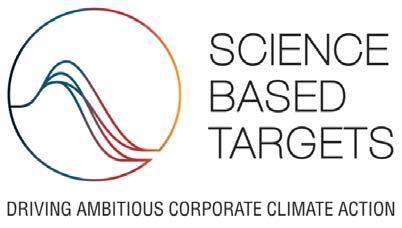
Standards and Policies
Our policies are developed in line with regulatory demands and business requirements from a sustainability perspective. Eton’s policy process is described in the Procedure for Policy Management. This procedure ensures the existence of relevant policies, their communication and understanding, and their monitoring and enforcement. All policies, procedures and instructions are reviewed annually and adopted by the Board of Directors at the annual general meeting.

All policies are available for Eton Group employees and partnering suppliers. Please email csr@etonshirts.com for access to these documents:
· Sustainability Policy
· The Eton Company Values
· Code of Conduct (internal)
· Code of Conduct (external)
· Code of Ethics (external)
· Anti-corruption and Anti-bribery Policy /HR Policy (including Equal Treatment, Workplace Guidelines)
· Car Policy
· Quality and process manuals (assembly)
· The Eton More Sustainable Product Guideline
· The Eton Principles — our policy for Performance, Quality, Flammability and Chemical Restrictions, based on REACH, ECHA – the European Chemical Agency’s Candidate List of Substances of Very High Concern for Authorization –and the OEKO-Tex standard.

How We Report
SCOPE AND BOUNDARIES
The Eton Group produces an annual sustainability report in the same timeframe as the annual report. The Sustainability Report is developed in accordance with GRI and covers the global group operations of the Eton Group (As of 2023 this includes the following wholly owned subsidiaries; Eton AB, Eton Group AB, Eton Shirts GmbH, Eton Shirts Ltd, Eton Canada Inc, Eton Holding Inc, Eton Inc and Eton Madison Avenue Inc) including six offices in Sweden, Italy, USA and the UK, six showrooms in the Netherlands, Italy, UK, USA and Sweden, two own-operated logistics centers in Sweden and USA, as well as all own-operated Eton stores and outlets.
The report does not cover wholesale customer stores or Etonbranded shop-in-shops run by partners, partnering E-tailwholesellers or localized aspects of our operations in Japan and South Korea partially run through consultant firm Panagora. In case the results presented in the report deviates from the above, this is specified in relation to the specific result.
THE ETON GROUP IS OWNED BY EQT
To ensure compliance with laws and regulations, we make our sustainability report public on bolagsverket.se and etonshirts.com. The report has not been reviewed in full by any third party.
FRAMEWORK
This report is prepared in accordance with the Global Reporting Initiative (GRI) Standards: Core Option. Additional information about our ownership structure,
business operations, financials can be found in our Annual Report for 2023.
REPORTING PERIOD AND FREQUENCY
Eton creates a public sustainability report each year, this report covers the period 1 January, 2023 through 31 December, 2023. The report was approved by the Board on the 24th of April 2024.
PROCESS
The Head of Sustainability is responsible for reviewing and approving the reported information, including the organization’s material topics. This is done in collaboration with all department representatives, and the identified issues and progress is documented. The report is presented to, and approved by CEO, David Thörewik, and Board of Directors, chaired by Peter Sjölander.
CONTACT
General requests and questions from the public: csr@etonshirts.com
Specific questions on this report: lina.odeen@etonshirts.com
Lina Ödeen, Head of Sustainability,
Eton AB
Stora vägen 8
507 71 Gånghester
Sweden ETONSHIRTS.COM
Statement of use: Eton Group has reported in accordance with the GRI standards for the period 2023 01 01–2023 12 31
GRI1: Foundation 2021
4.Strategy,
Applicable GRI sector standard(s):
applicable sector standad at the reporting period.

